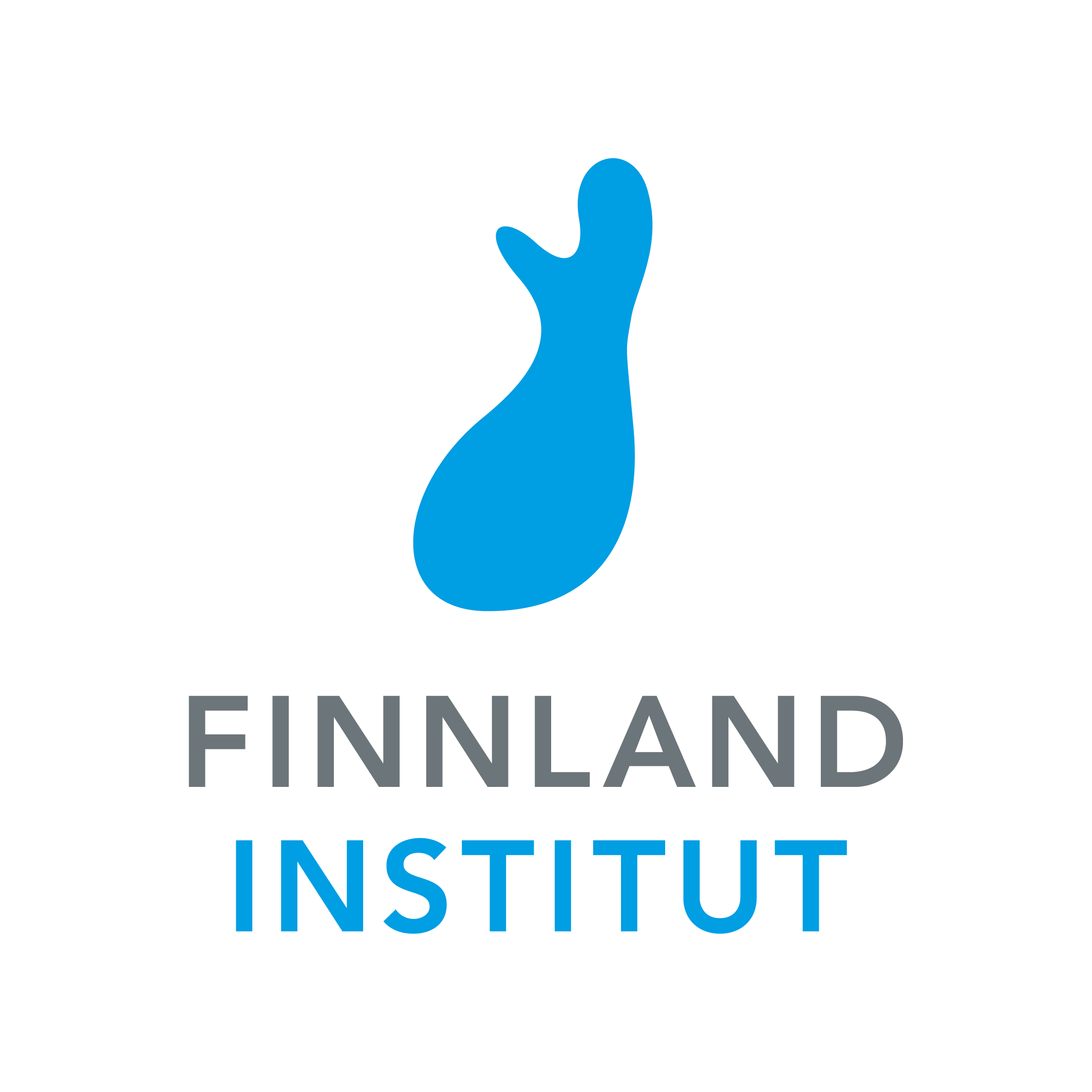Linda
Nach der Wende zieht Linda mit ihrer Mutter von Chemnitz nach Solingen – ein prägender Schritt. In unserem Comic erzählt sie davon, was bleibt, wenn man geht. Und warum es sich lohnt, über die DDR zu sprechen – jenseits von Klischees, im Austausch.
After the German Reunion, Linda moves with her mother from Chemnitz to Solingen – a formative step. In our comic, she reflects on what remains when you leave. And why it’s worth talking about the GDR – beyond clichés, in conversation.
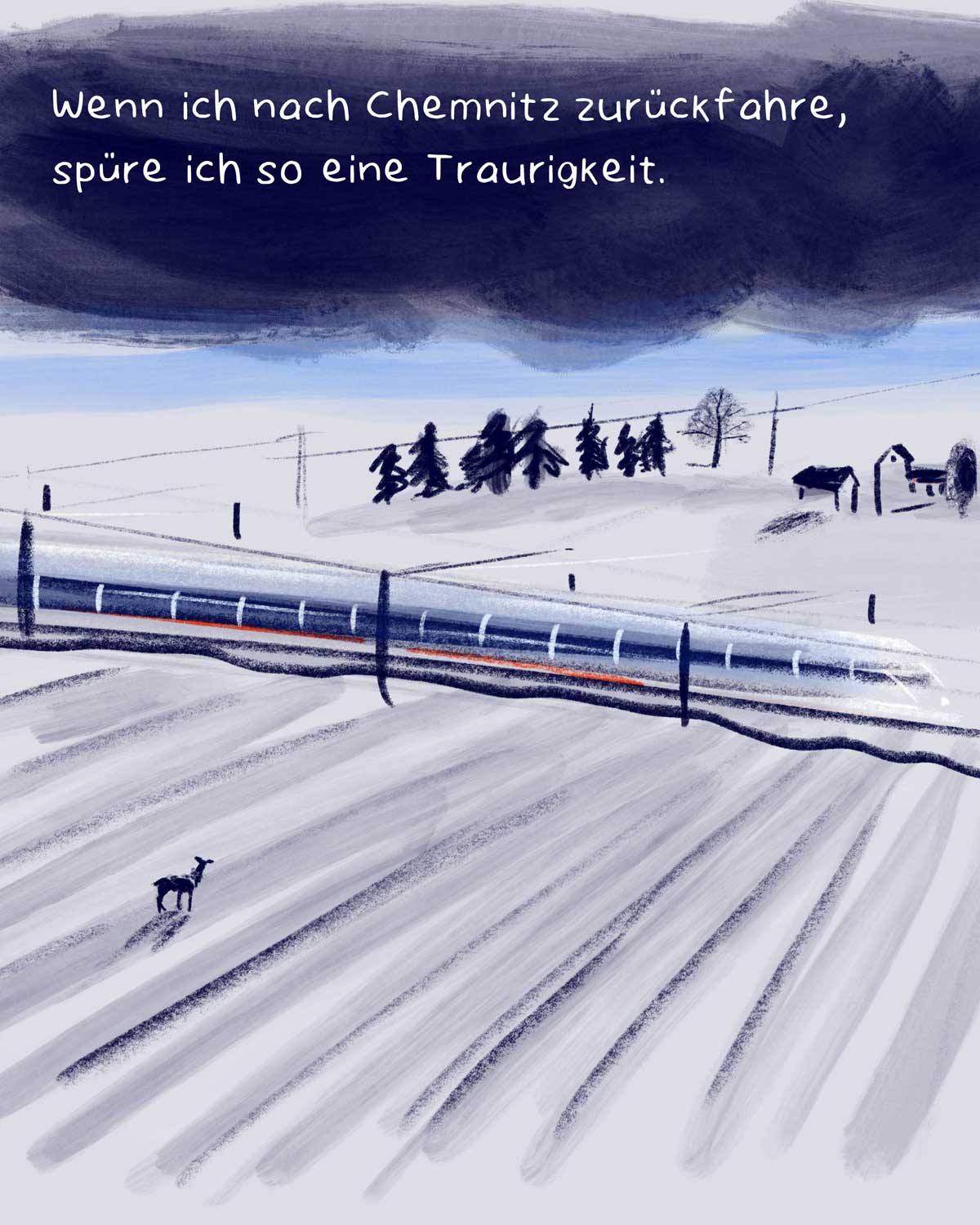
Whenever I go back to Chemnitz, I feel this deep sadness.
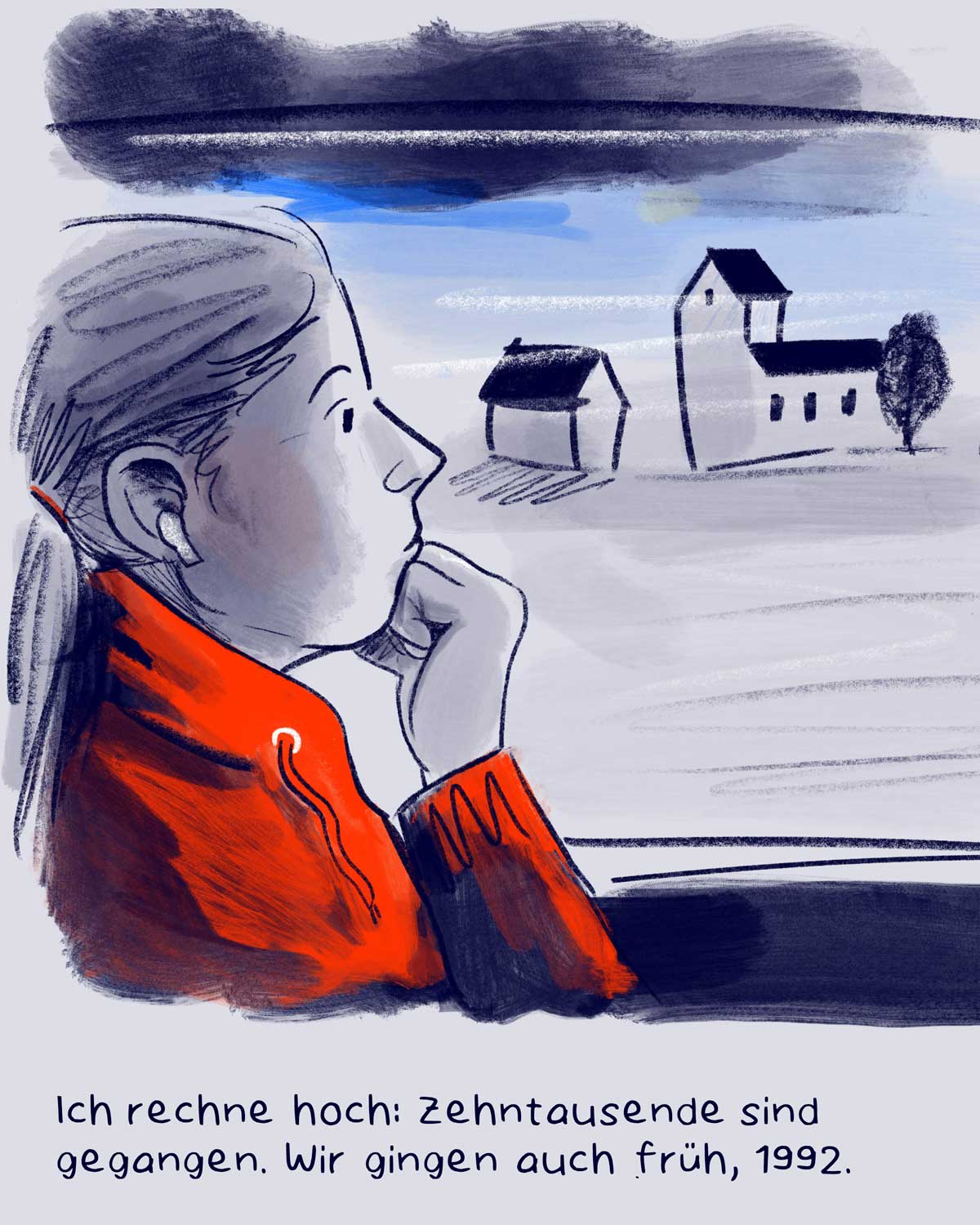
I do the math: tens of thousands have left.
We left early too, in 1992.
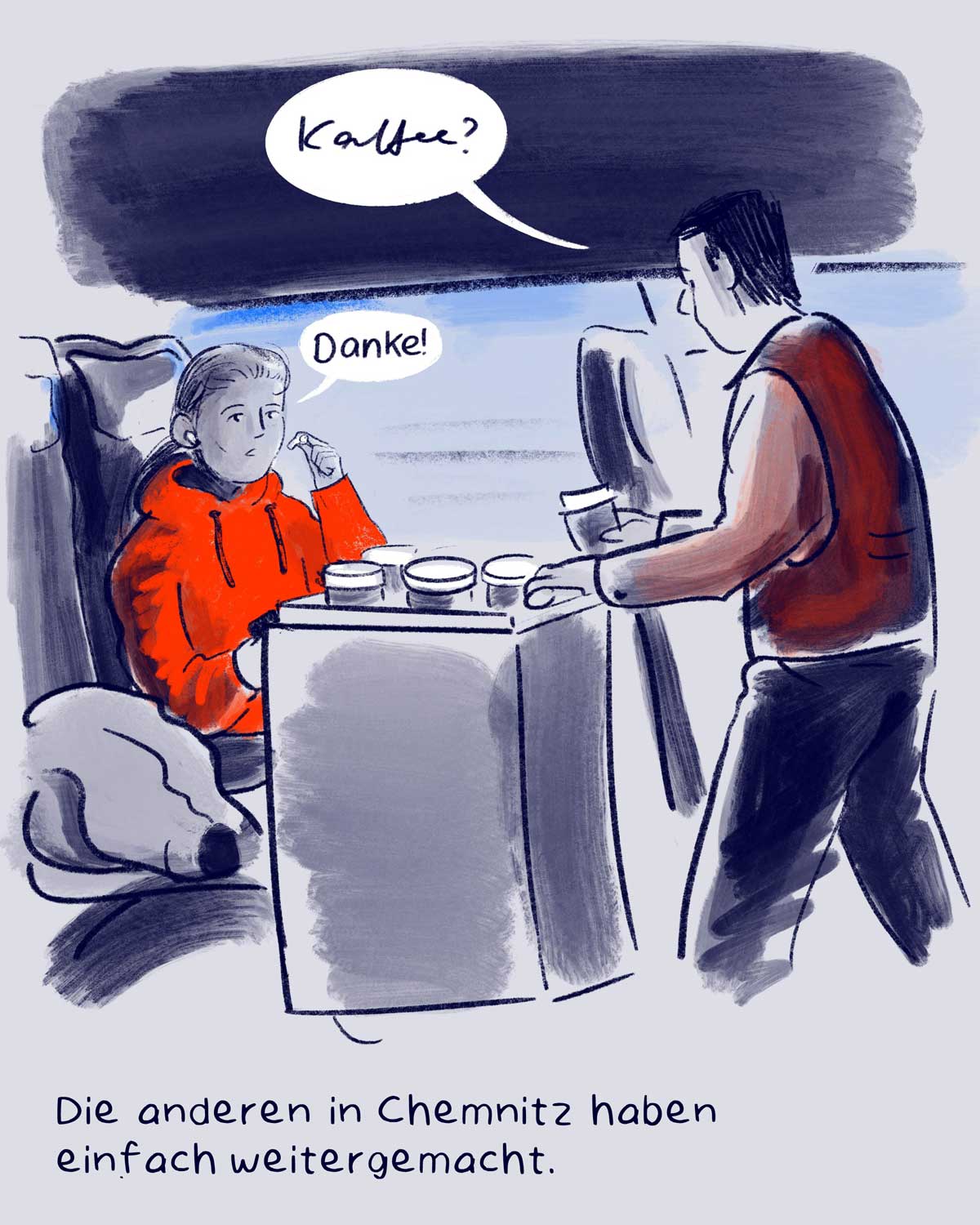
The others in Chemnitz just carried on.
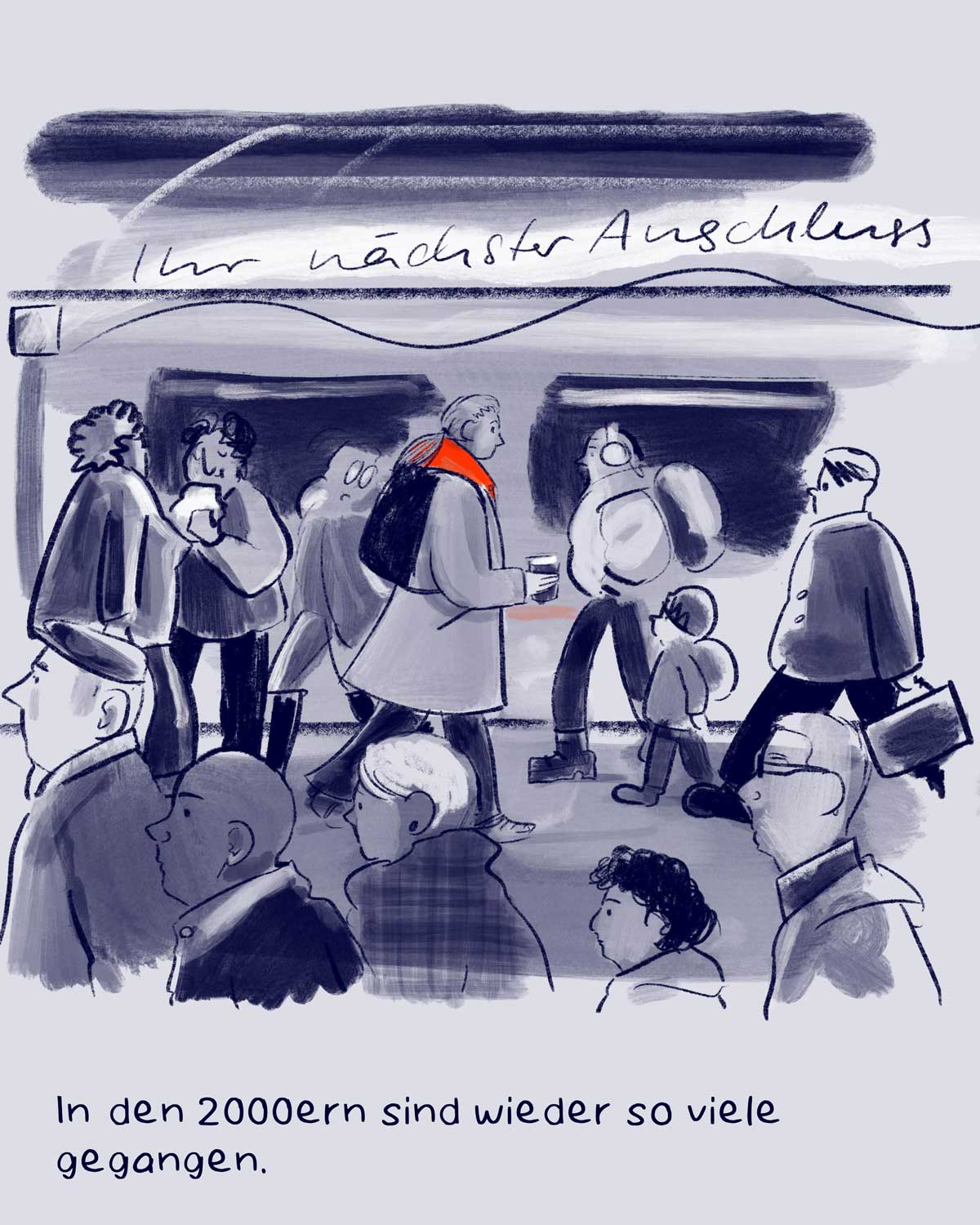
In the 2000s, so many left again.

Everyone tried to gain a foothold – and find a future in this new world.

Back then, in our family, we didn’t talk much about feelings like fear or sadness.

We moved to Solingen. I was eight, in the middle of second grade. For me, that was a defining moment. /
Even though they said: We’ll only stay a while, just for my mom’s job, then we’ll go back.
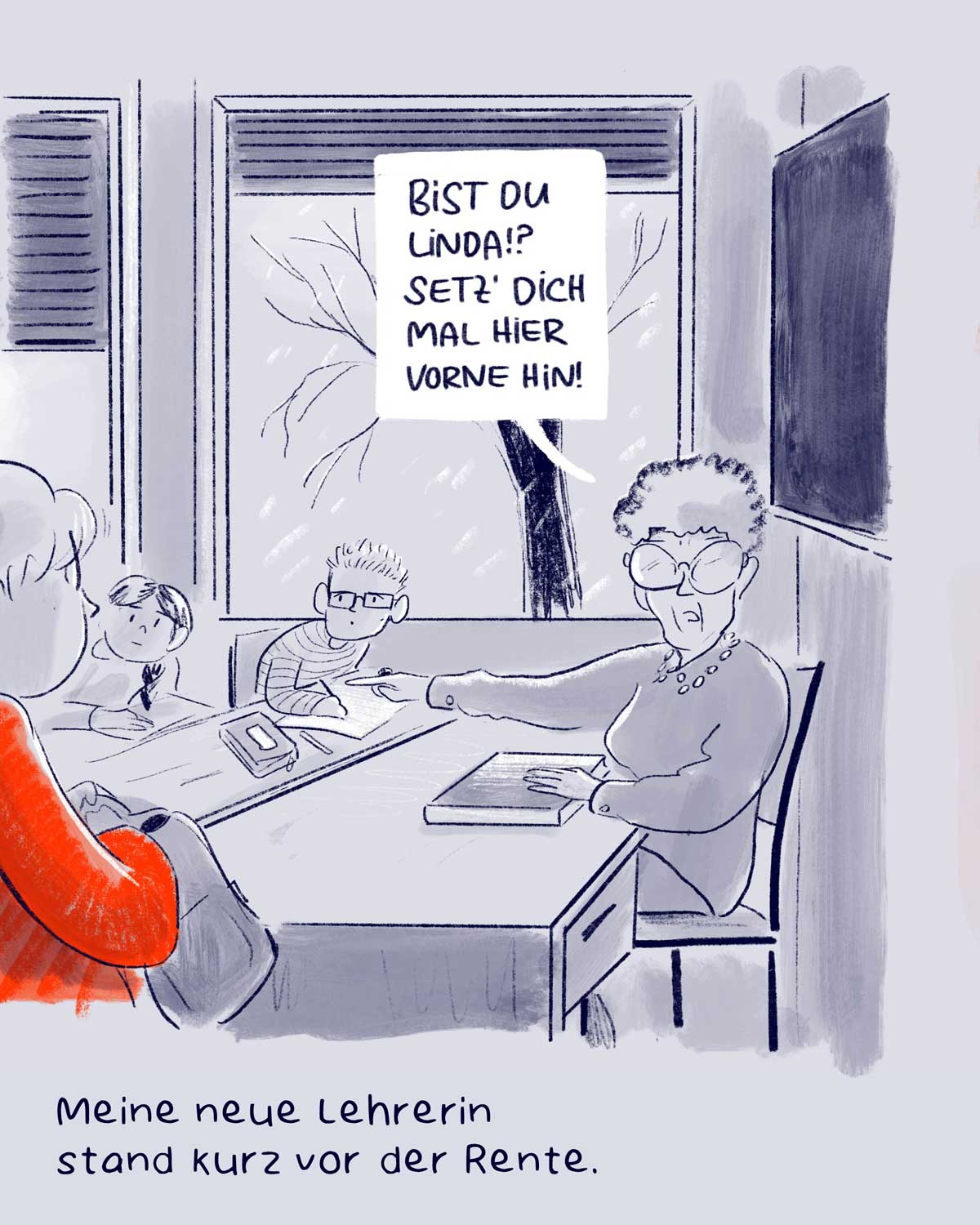
My new teacher was close to retirement.
Speech bubble teacher: “Are you Linda? Come sit up here in the front.”
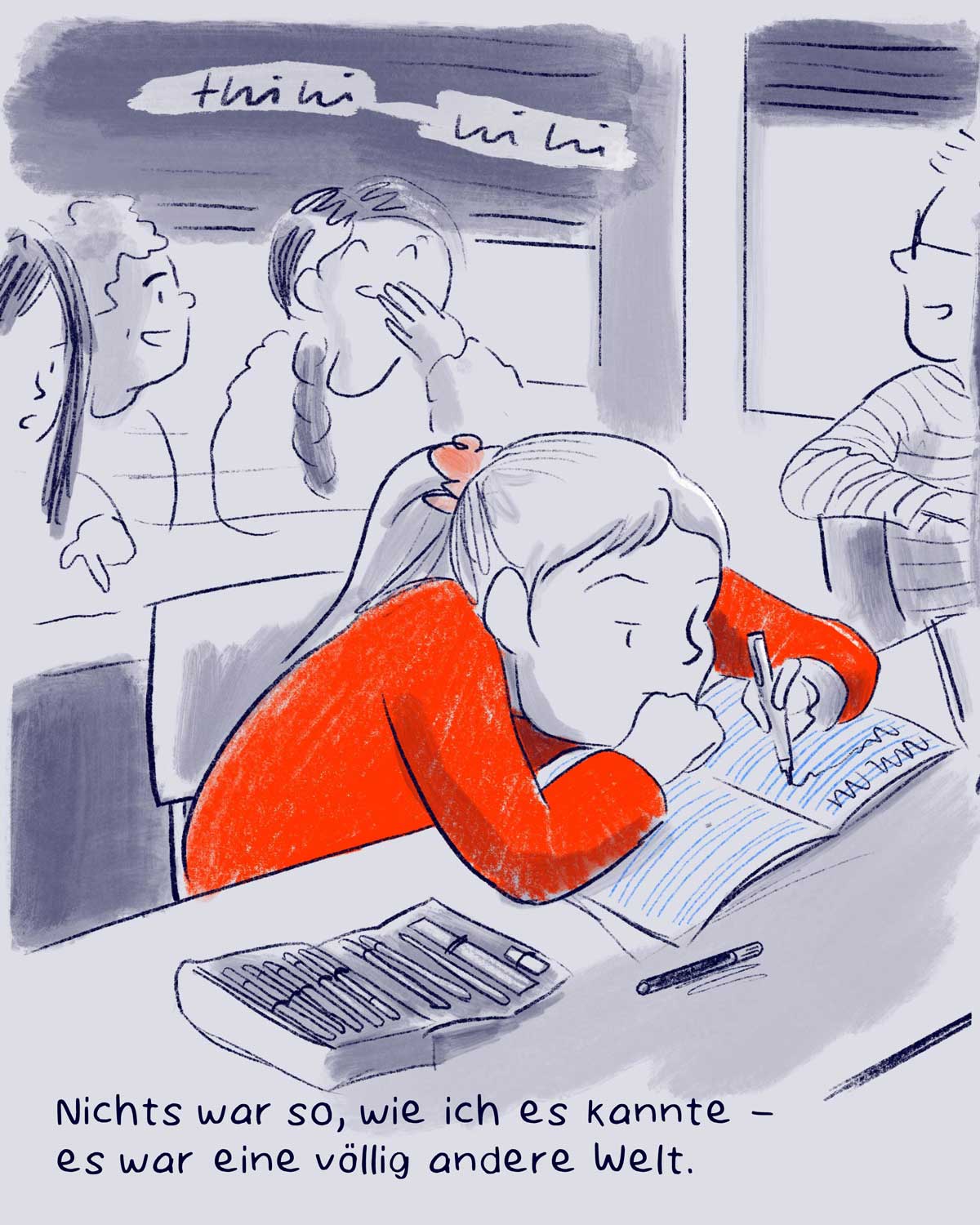
Nothing was the way I knew it – it was a completely different world.
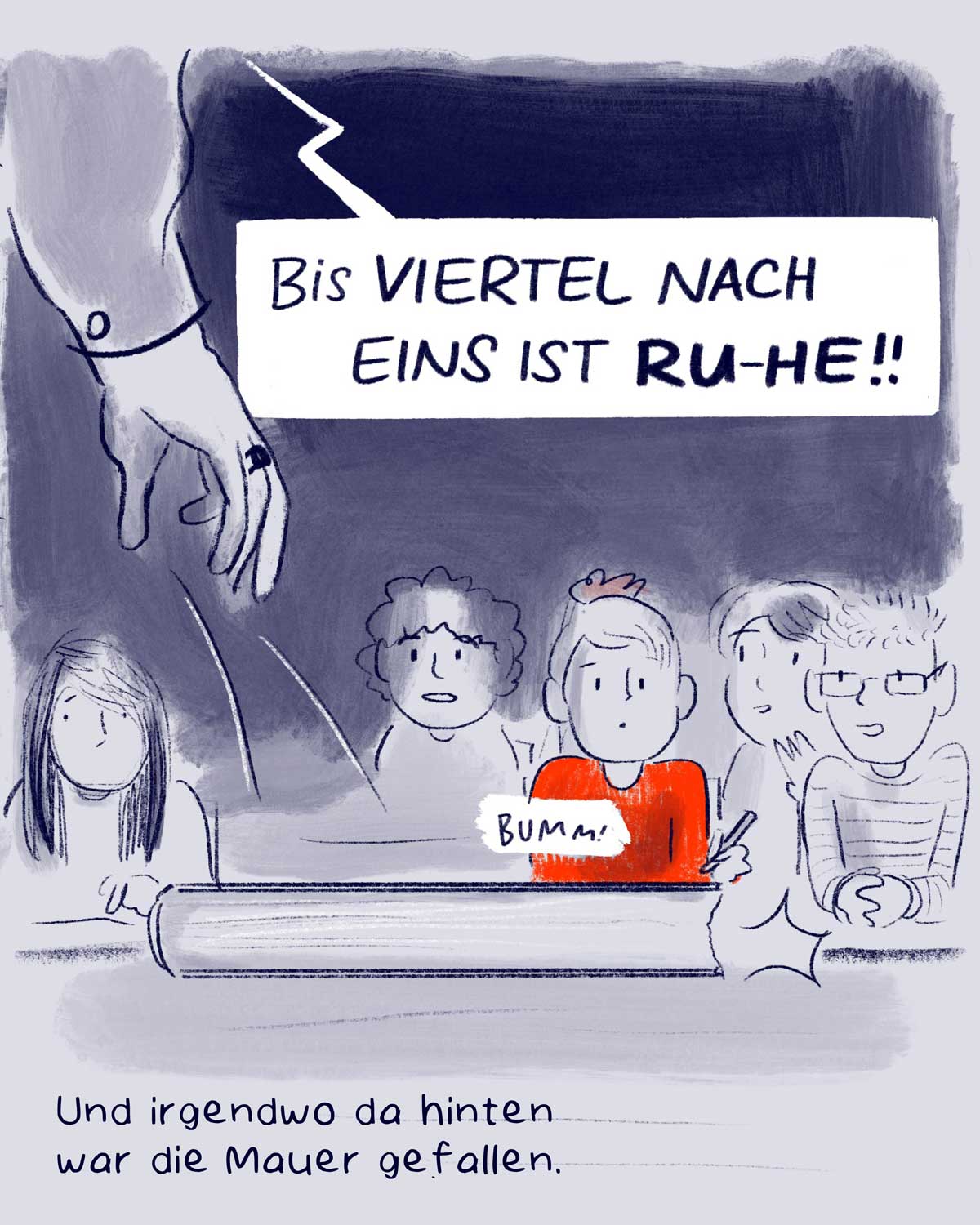
And somewhere back there, the Wall had just come down.
„Until quarter past one – you’re quiet!!“

My mom was my support.
Speech bubble mom: “My big girl!”

My dad stayed in Chemnitz for work: every weekend, he came to visit us. During school holidays, we went to him and to the rest of the family.
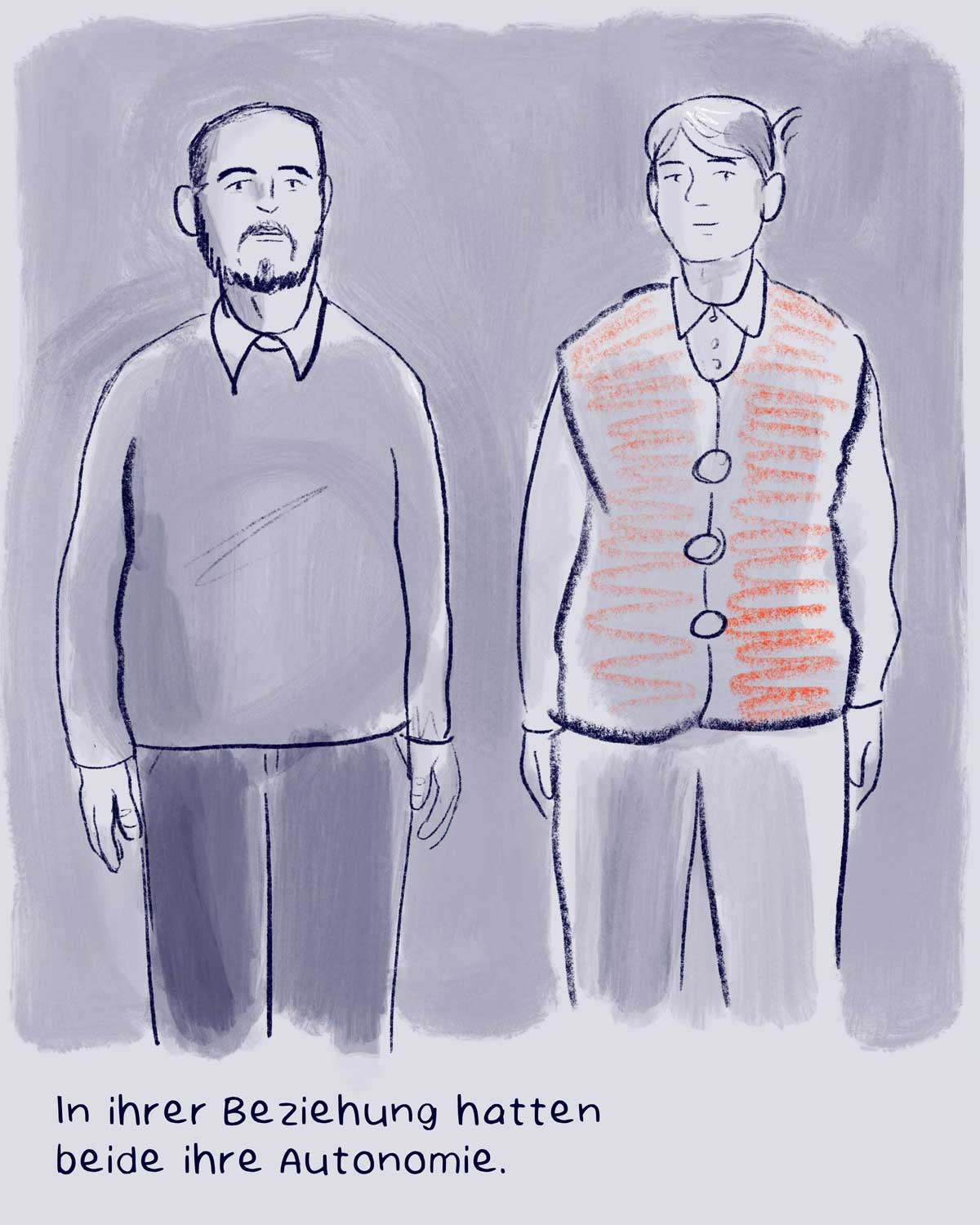
In their relationship, they each had their own autonomy.
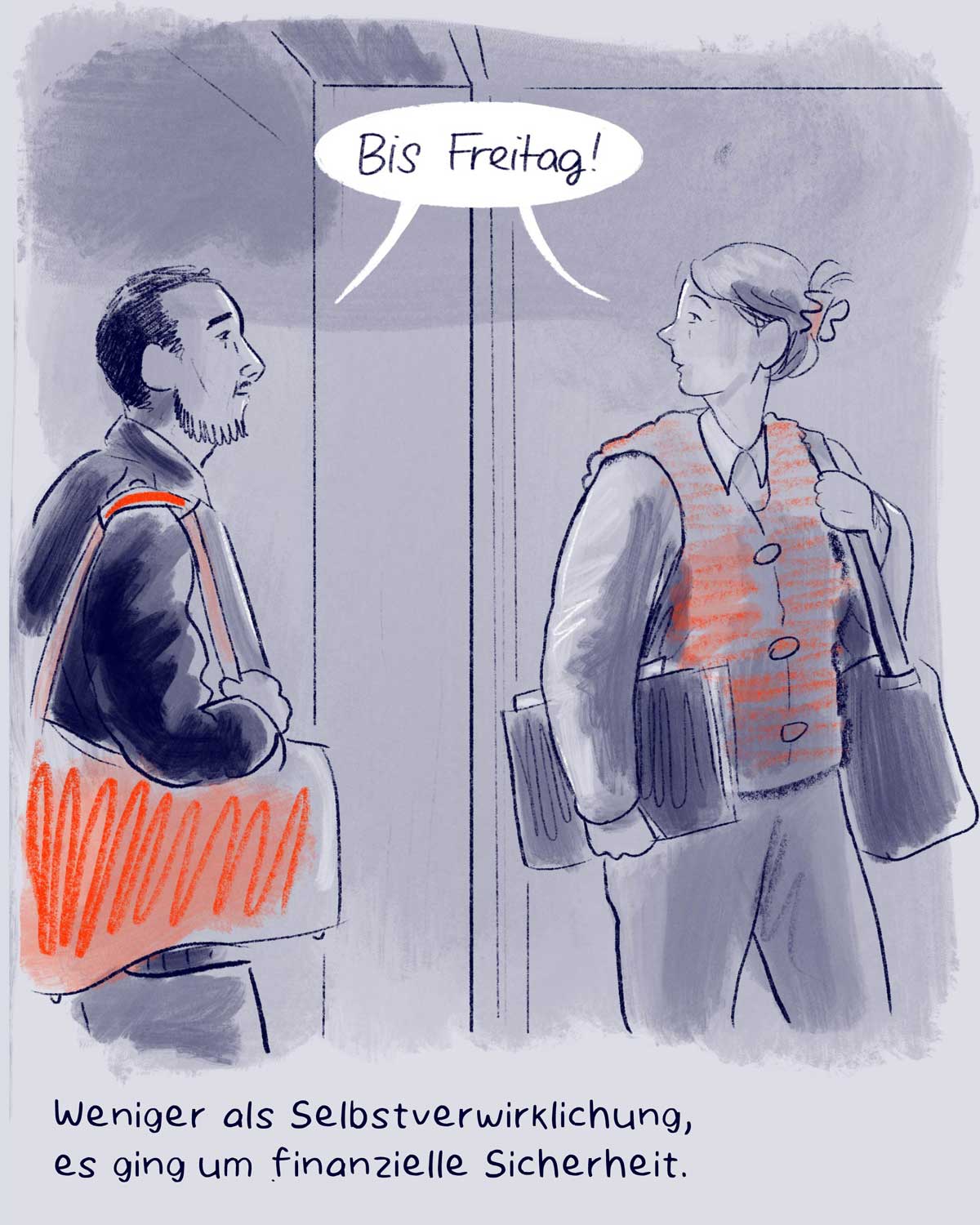
It wasn’t so much about self-fulfillment – it was about financial security.
„See you on Friday!“

And the question: What can I contribute to society?

But what if you just have to function and rarely ask yourself what you need?
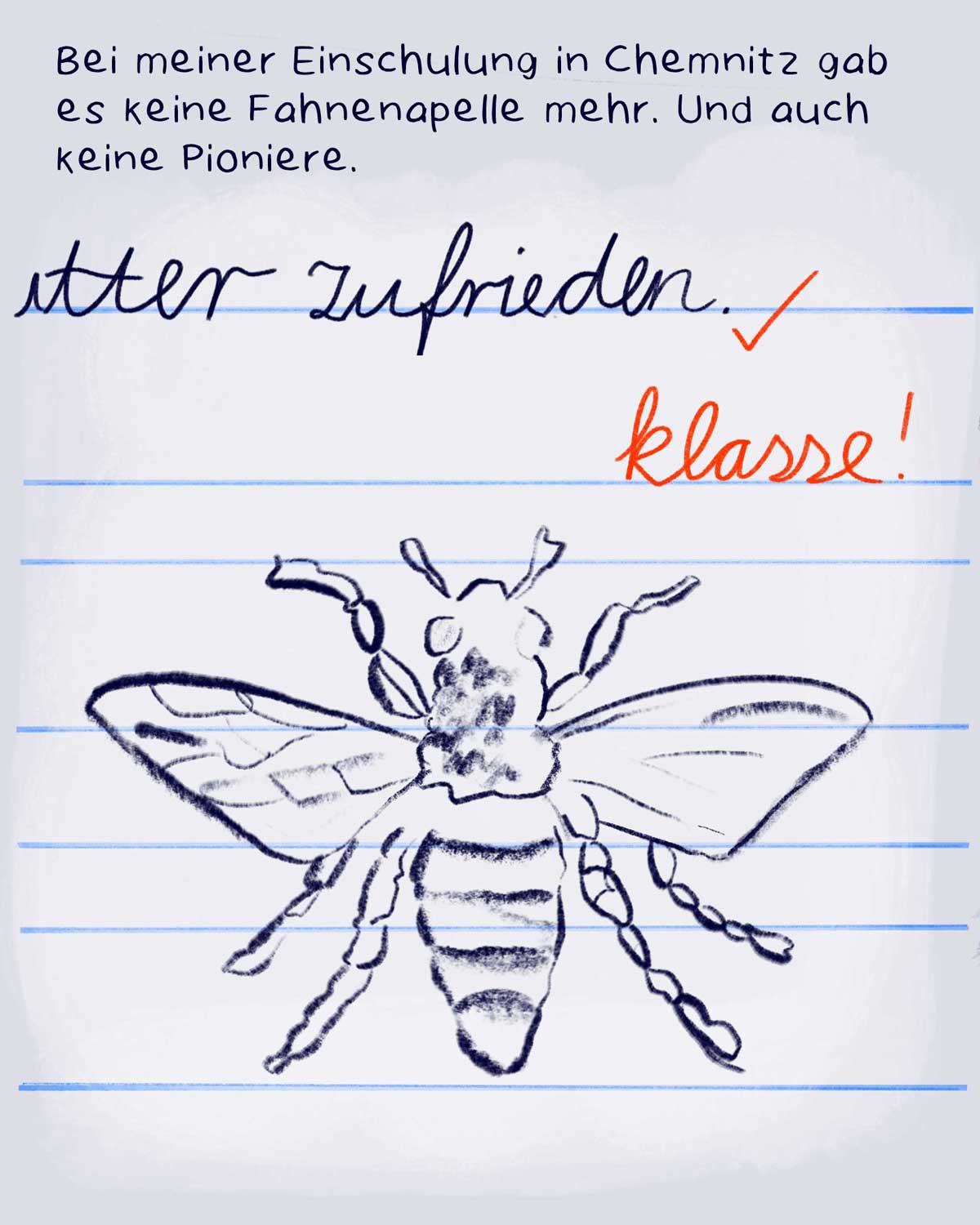
When I started school in Chemnitz, there were no more Fahnenappelle (flag assemblies). And no more Pioneers either.
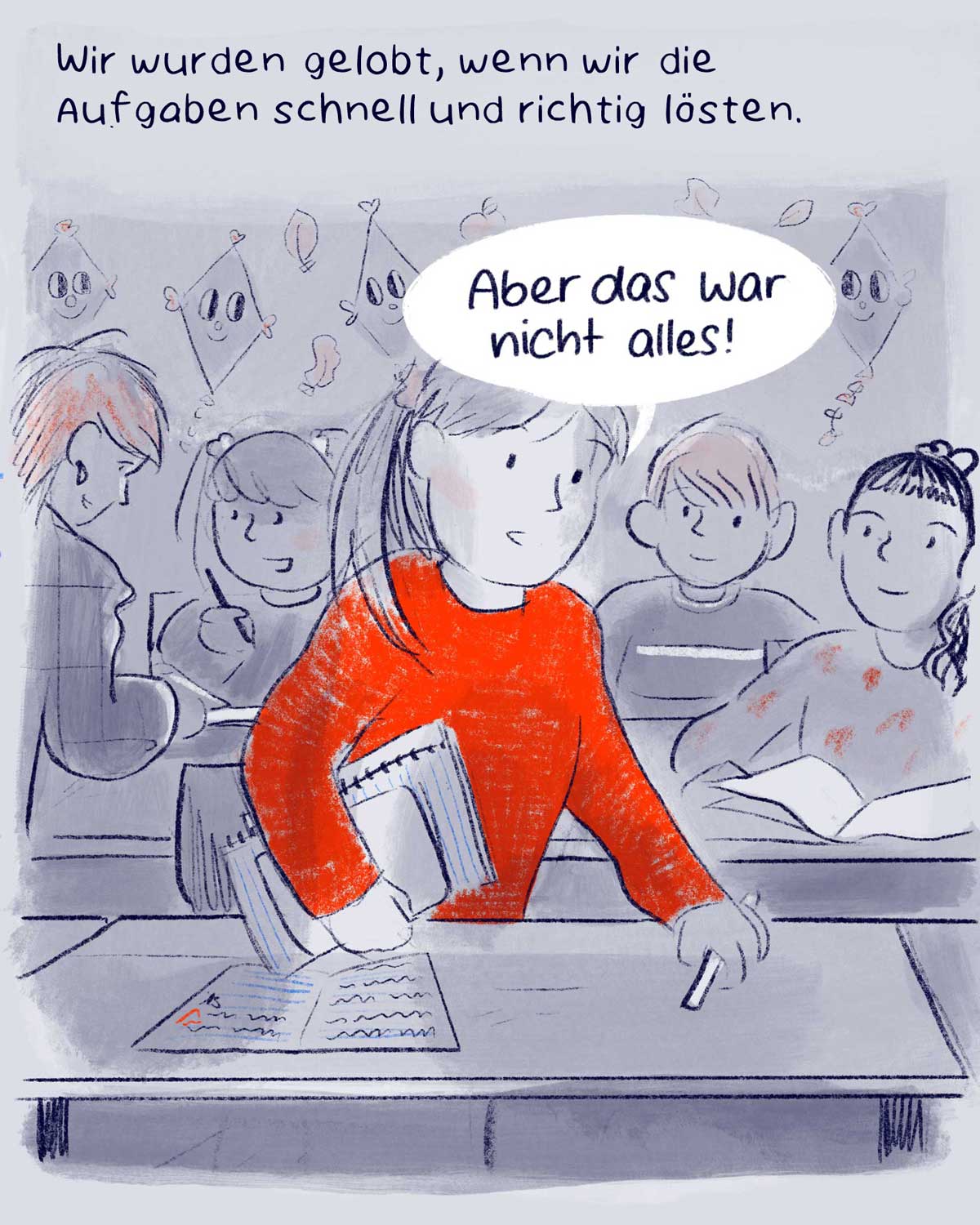
We were told we’d done well if we solved the tasks quickly and correctly.
“But that wasn’t all!”
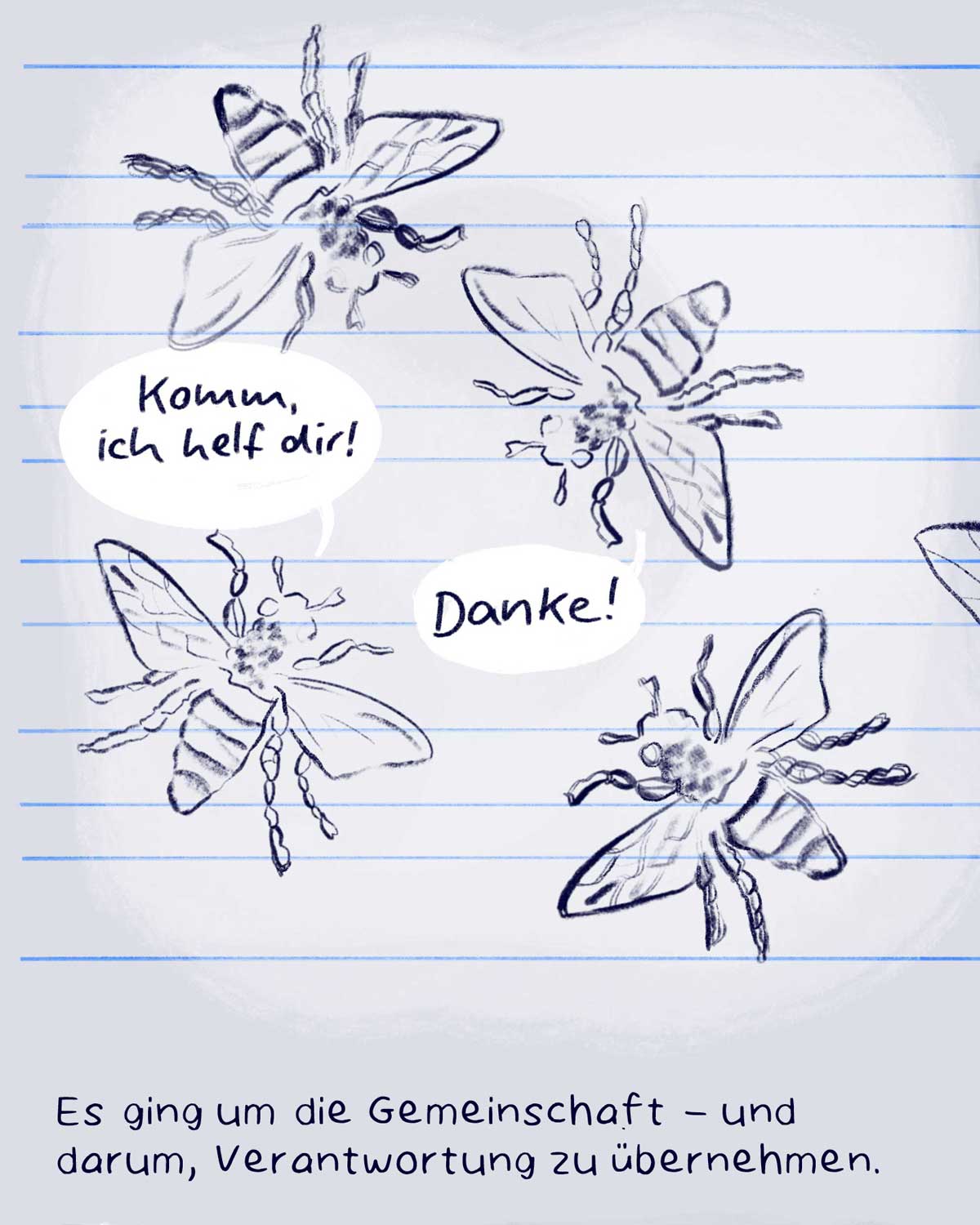
It was about the community – and about taking responsibility.
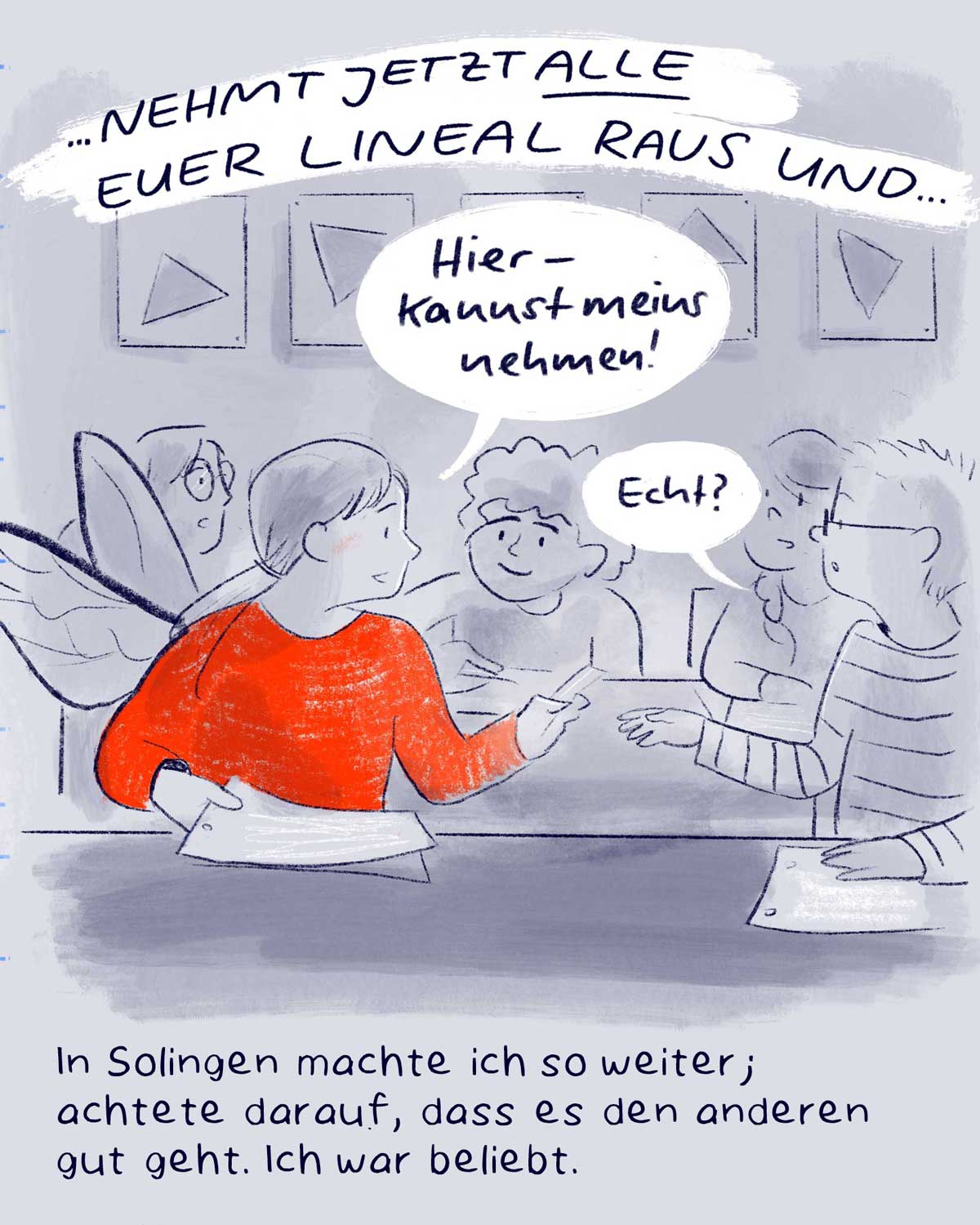
In Solingen, I continued like that – I made sure others were doing well. The others liked me.

I missed my old class. At Christmas, we wrote to each other.
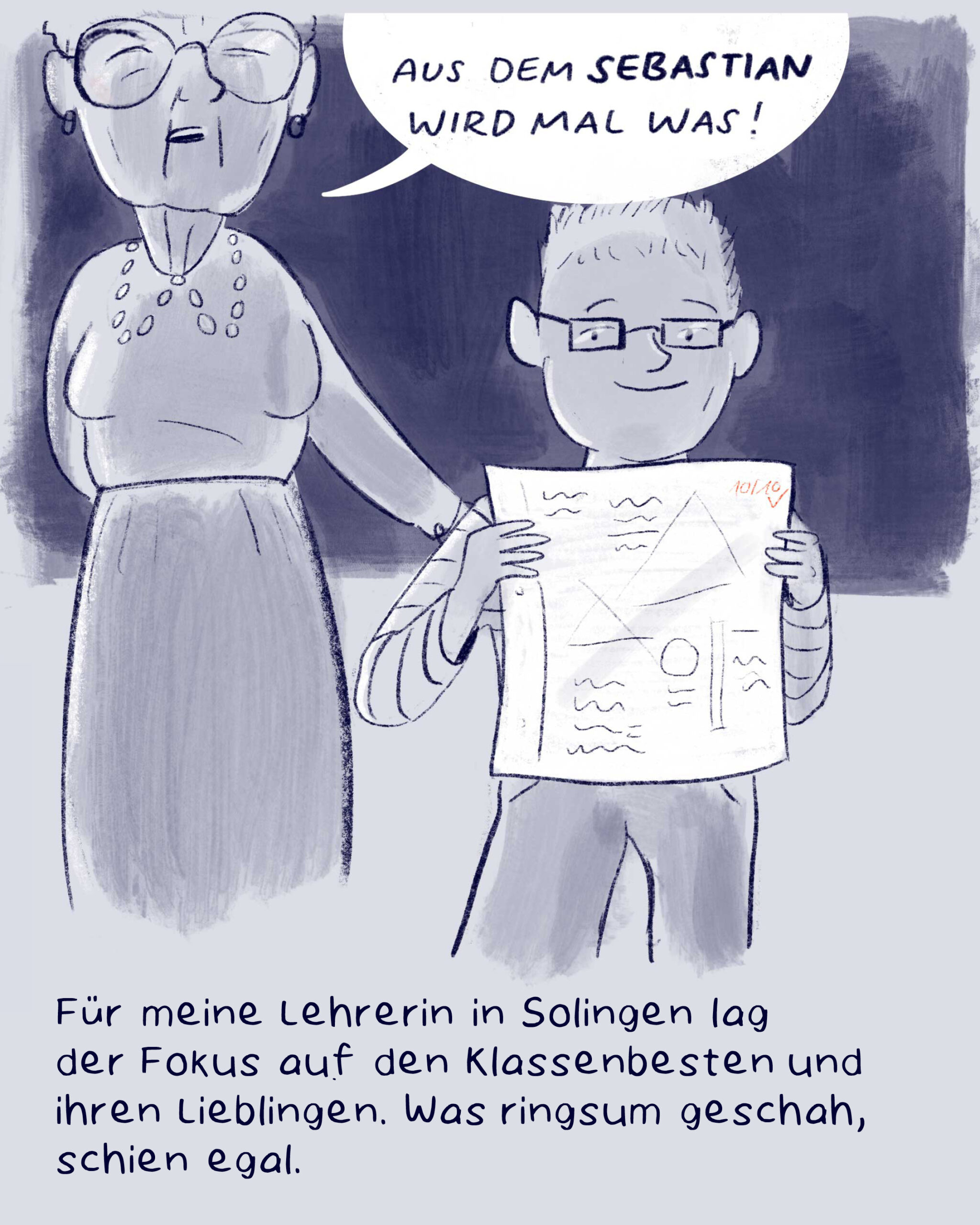
For my teacher in Solingen, the focus was on the top students and her favorites. What happened around seemed not to matter.

There was a girl in our class, already older than the others and quieter.

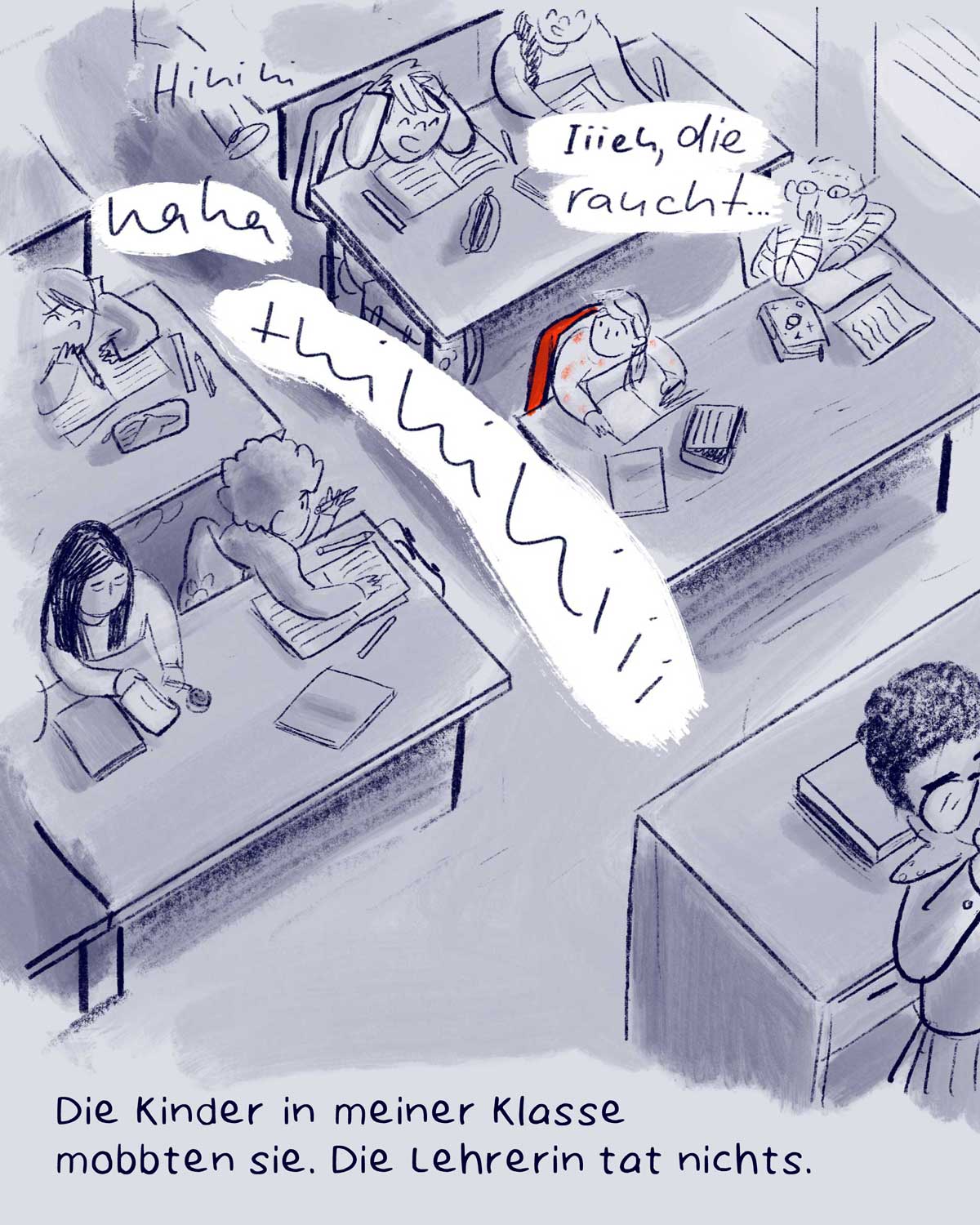
The children in my class bullied her. The teacher did nothing. „Eewww, she smokes.“

„Hey! You jerk!“
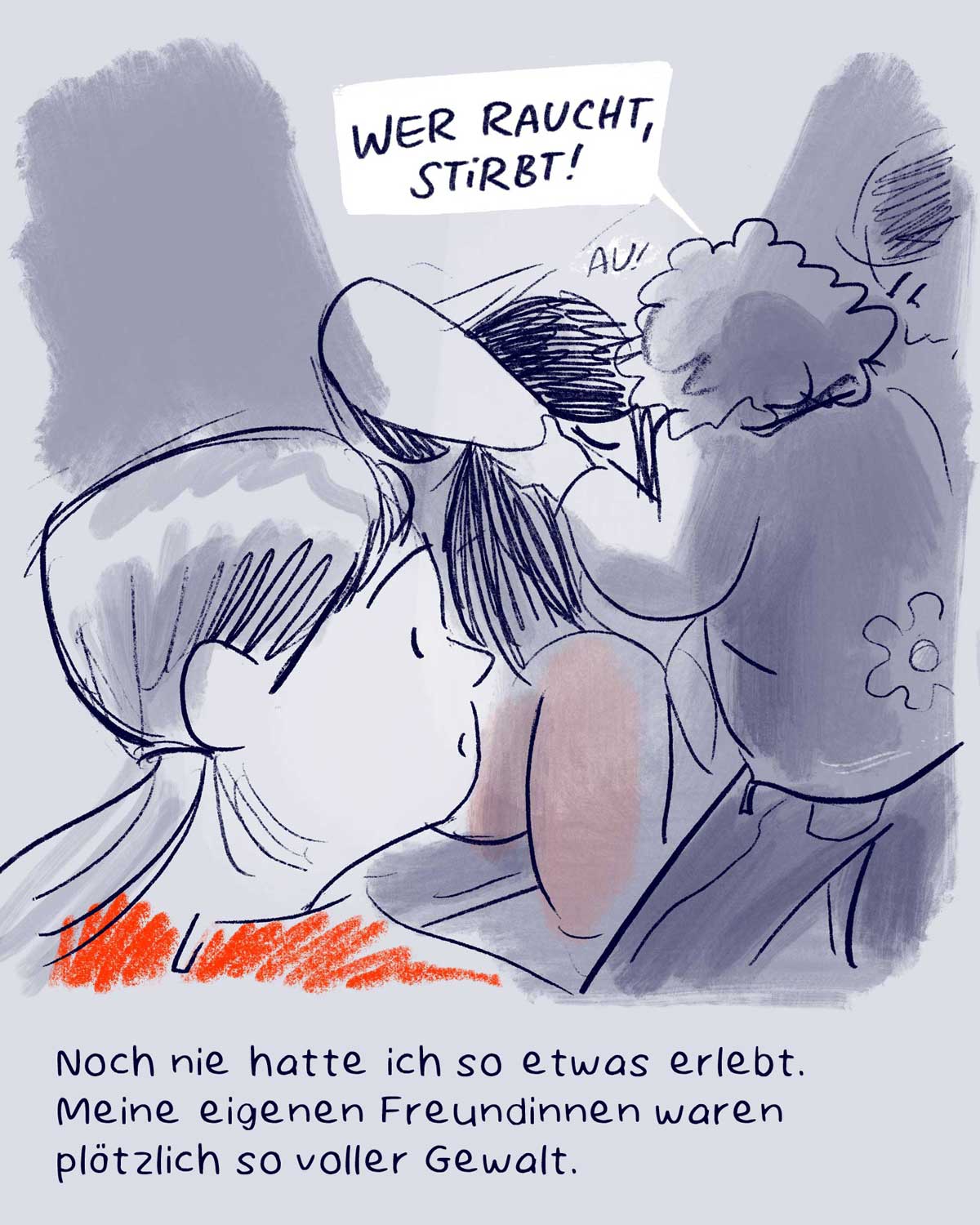
I had never experienced anything like it before. My own friends were suddenly so full of violence.
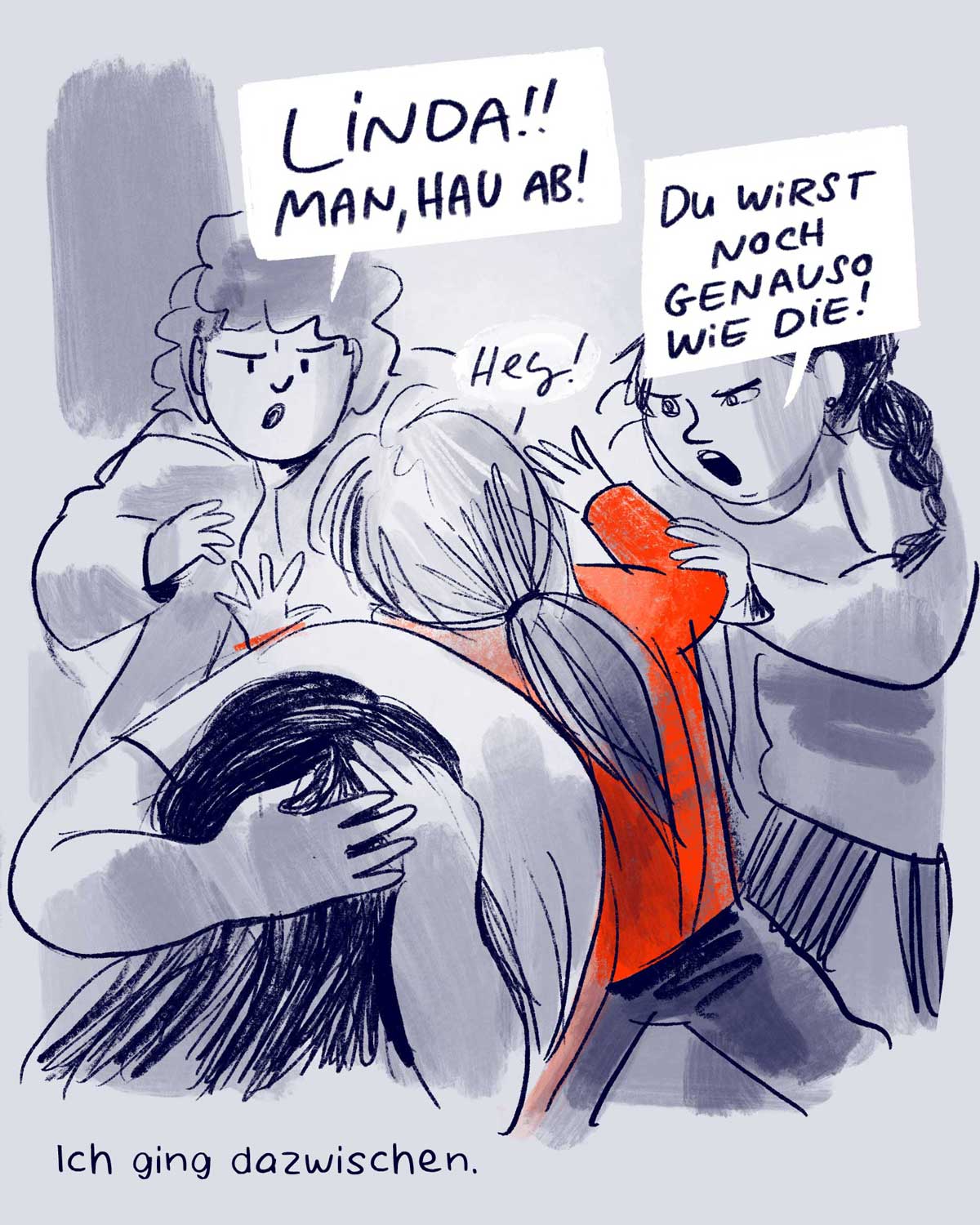
I stepped in.
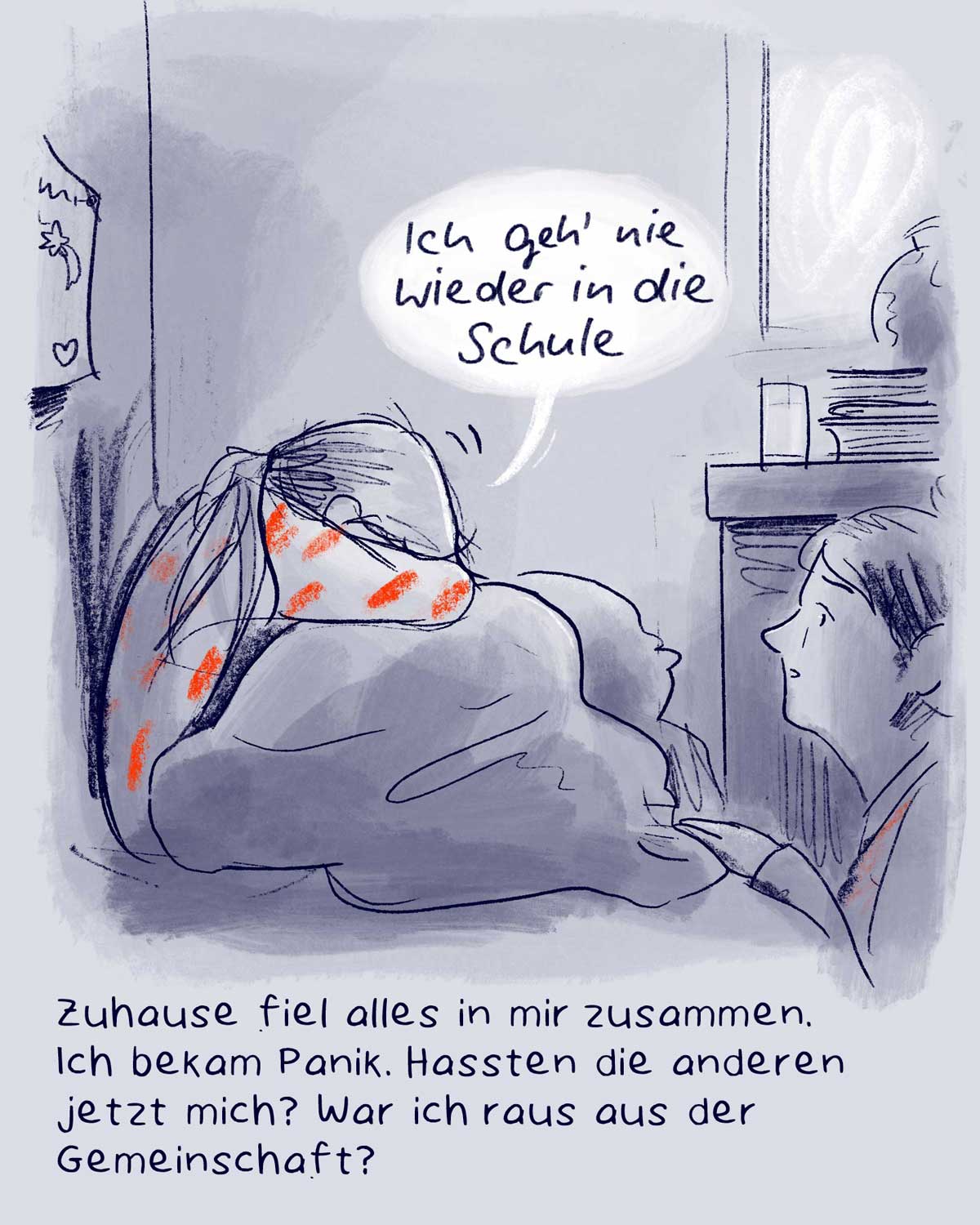
I panicked. Did the others hate me now?
Was I no longer part of the group?
“I’m never going to school again!”
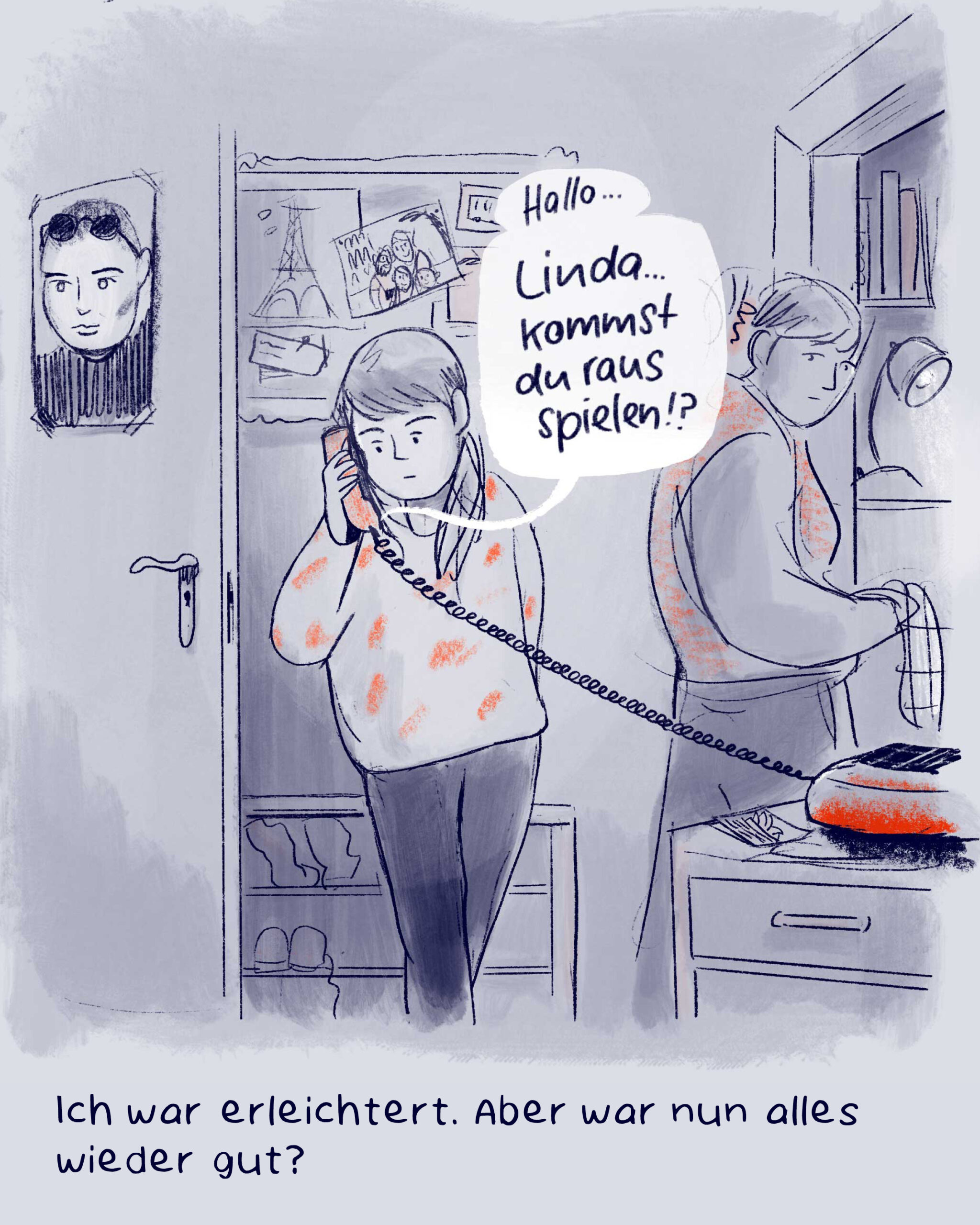
That afternoon, the phone rang. I was relieved. But was everything really okay again?

A few years later, I was about 13, I went with my father to an event in Chemnitz. A friend of my parents joined us.
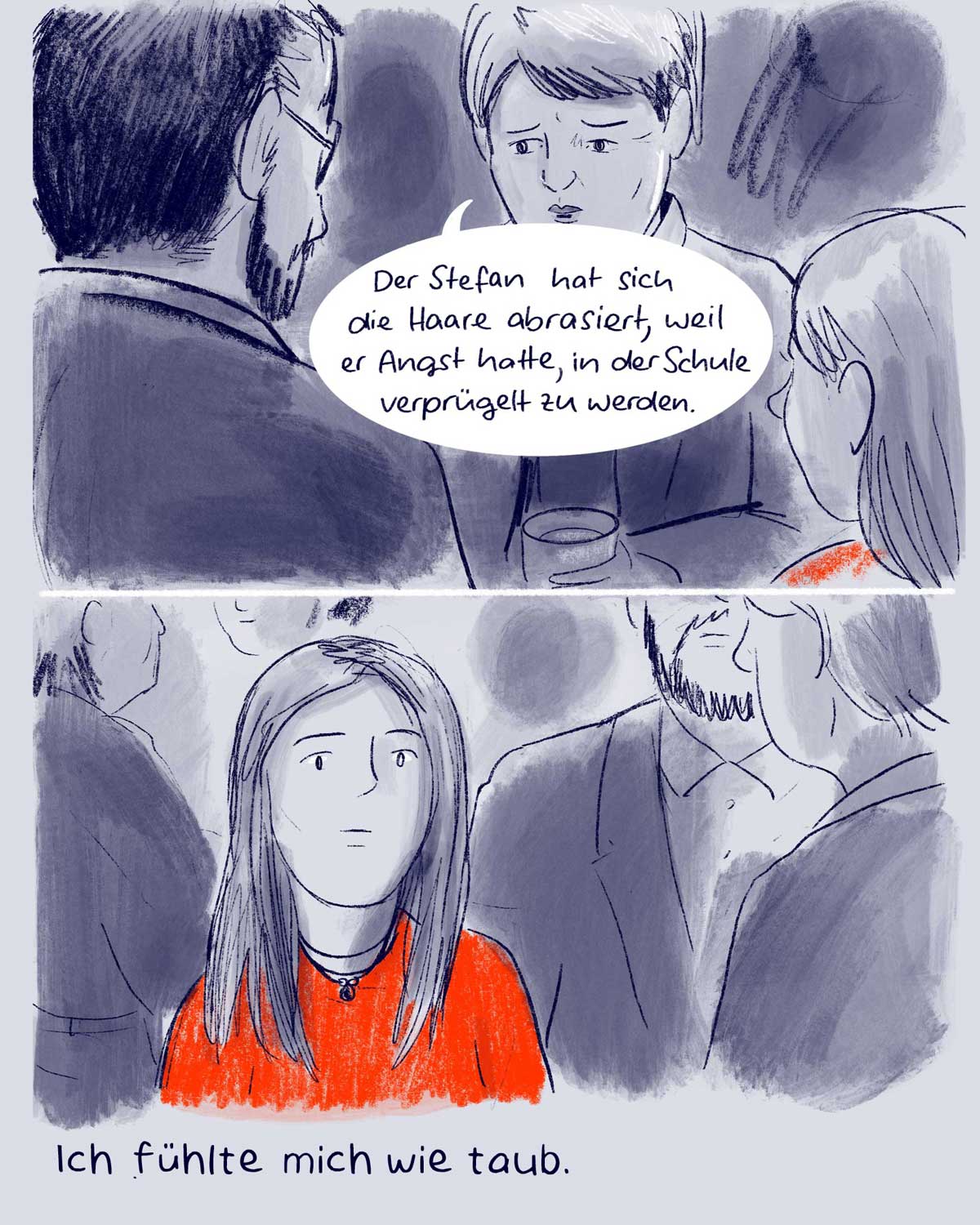
I felt numb.
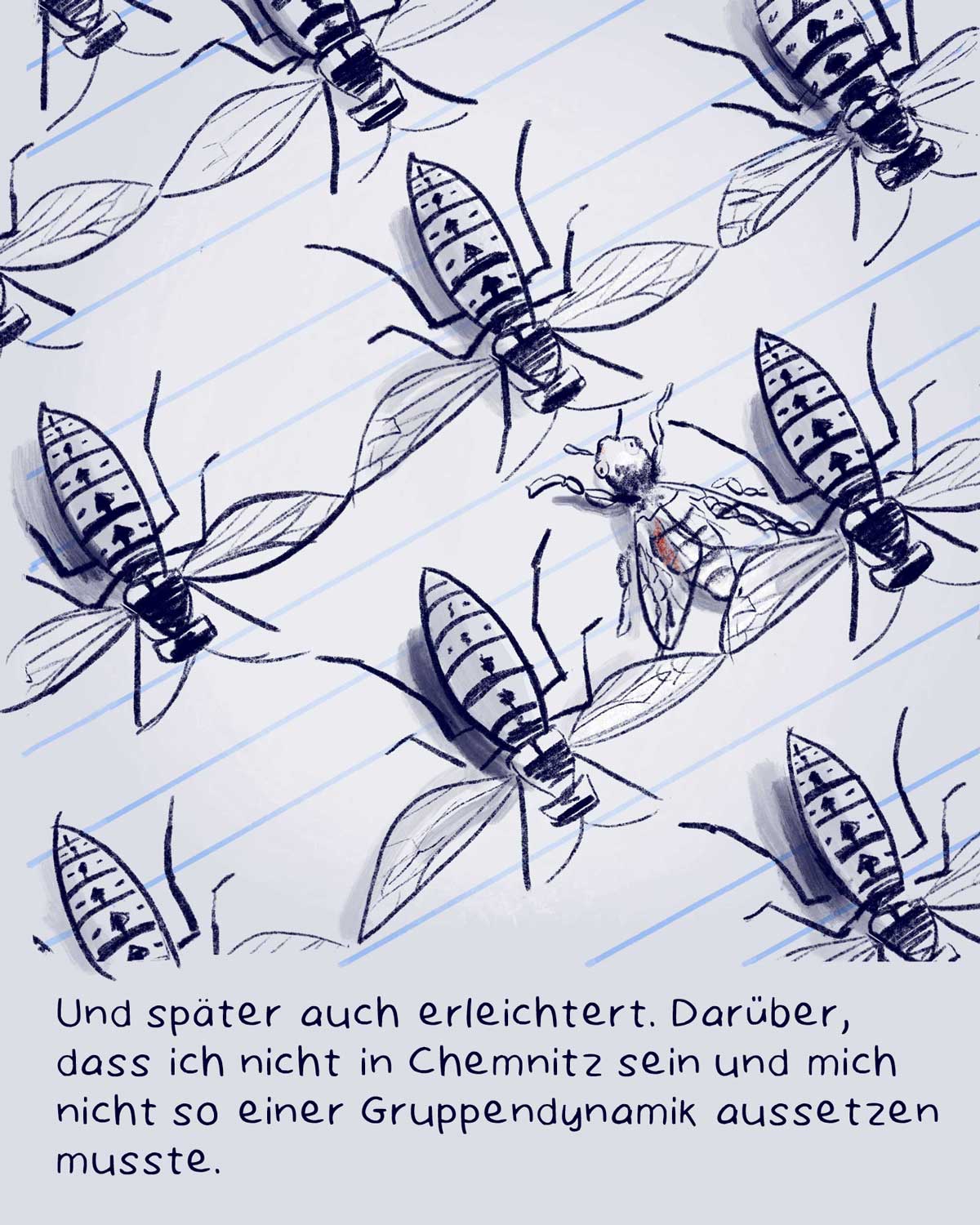
And later, I also felt relieved that I didn’t have to be in Chemnitz and deal with that kind of group dynamic.

“Do you want me to play some music?”
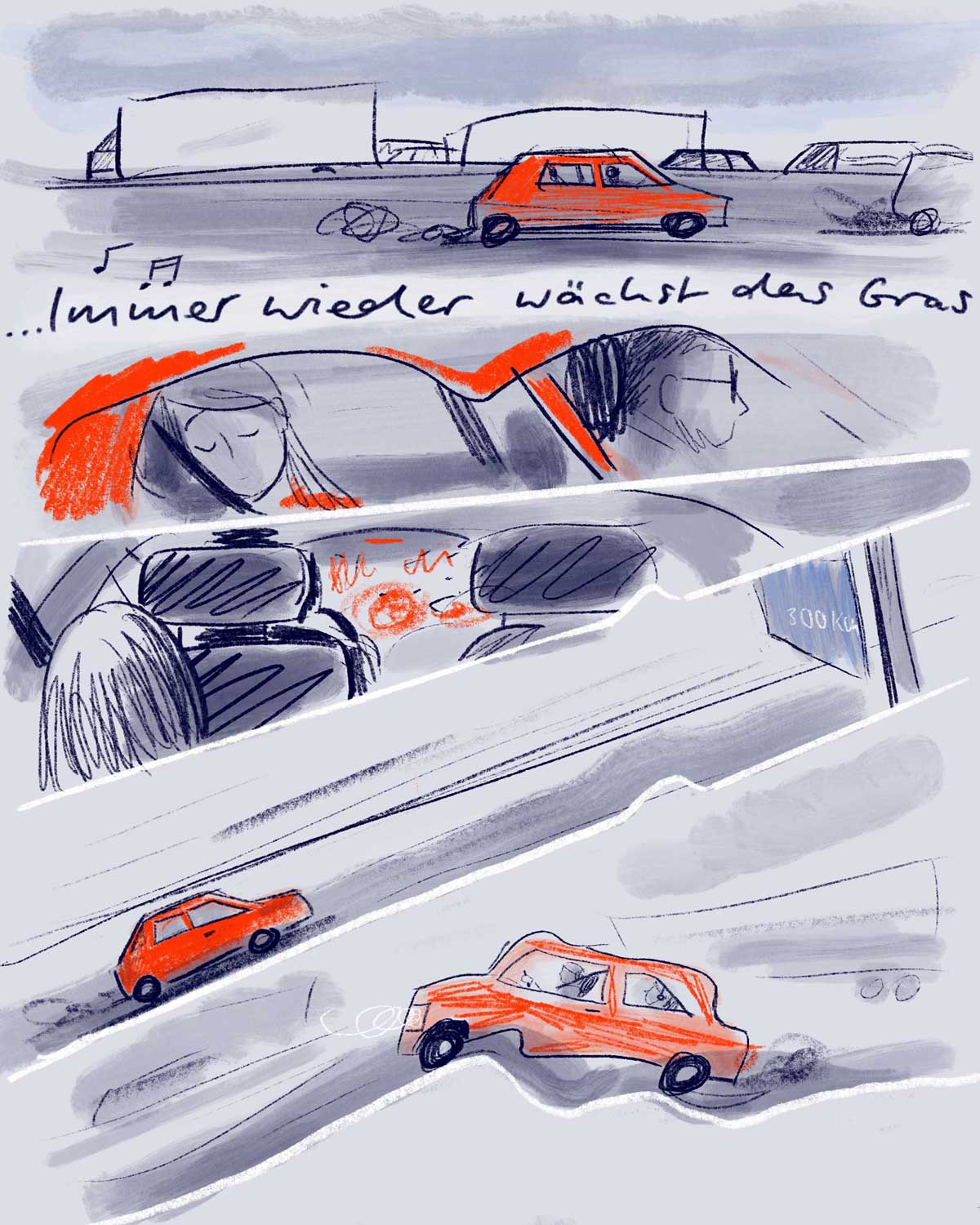
song “Grass keeps growing…”

Five years after we moved, my parents separated.

Today I’m an adult, and I no longer live in Solingen either. I have often thought about what it would be like to return to Chemnitz.

But there is the fear of falling back into an old routine, where there is only a Right and a Wrong – structures shaped not only by the GDR, but perhaps rooted even more deeply.
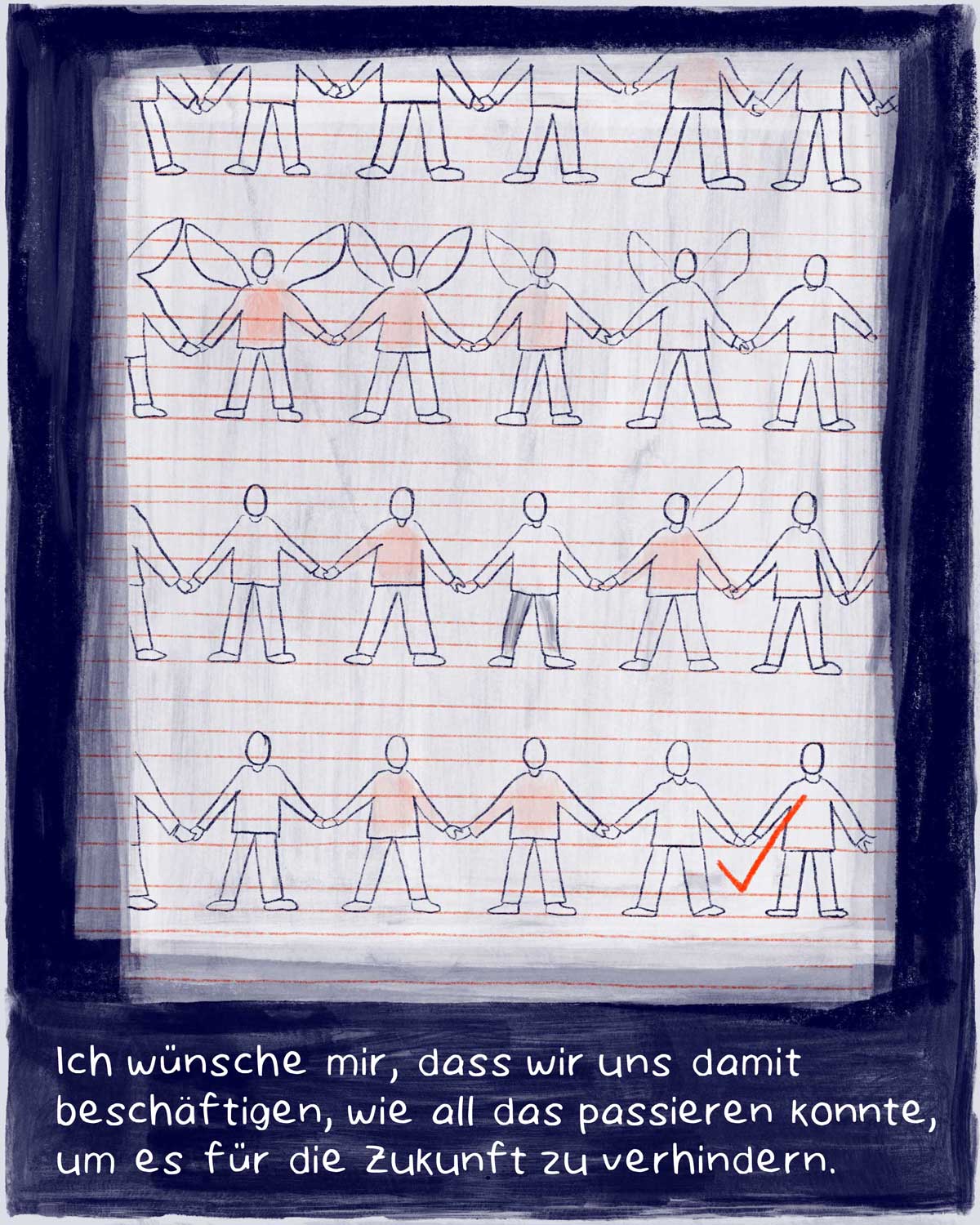
I hope that we engage with how all of this could happen, so that it can be prevented in the future.
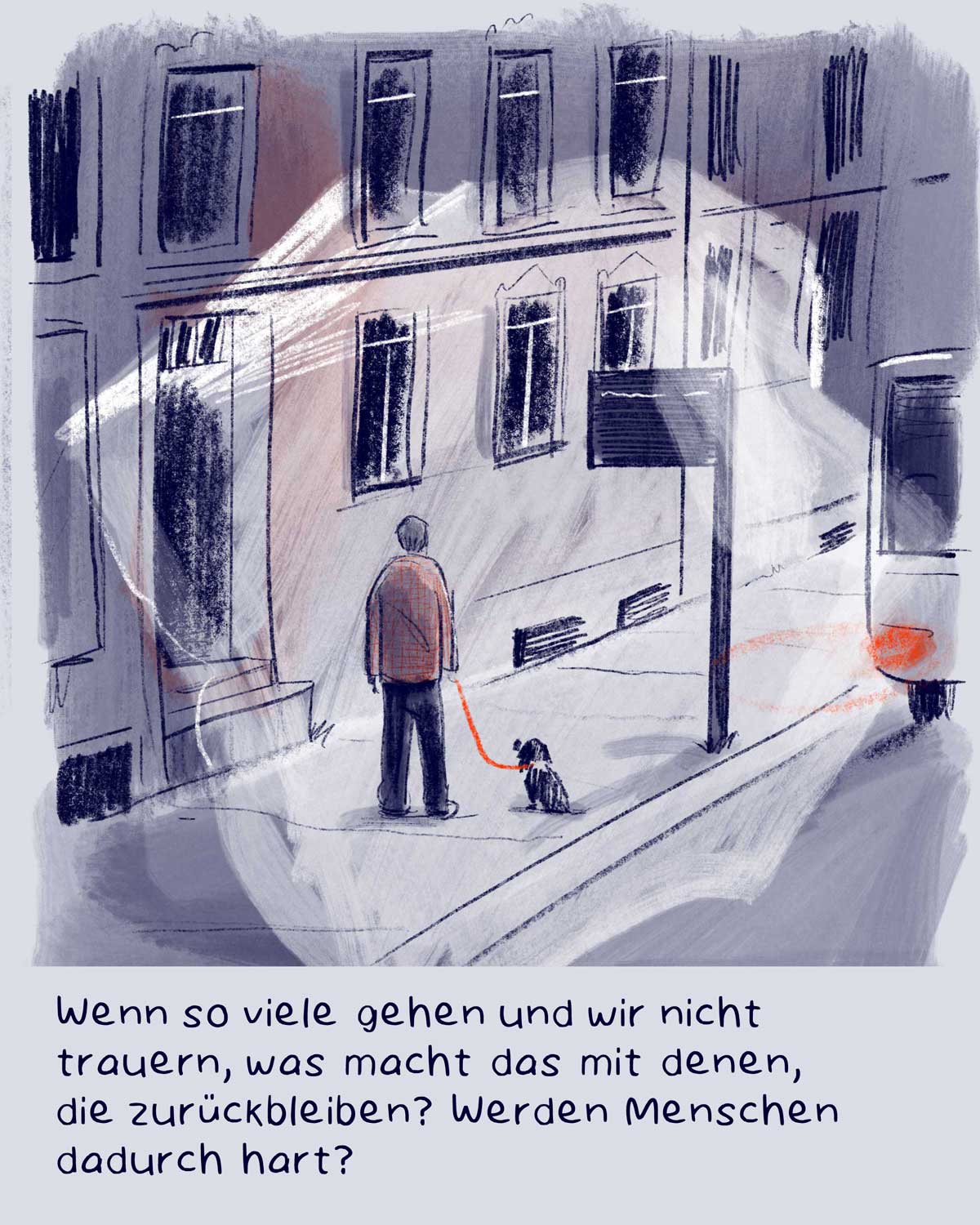
When so many people leave, and we don’t grieve – what happens to those who stay behind? Do people grow hard?

Ignorance grows where there is no connection.
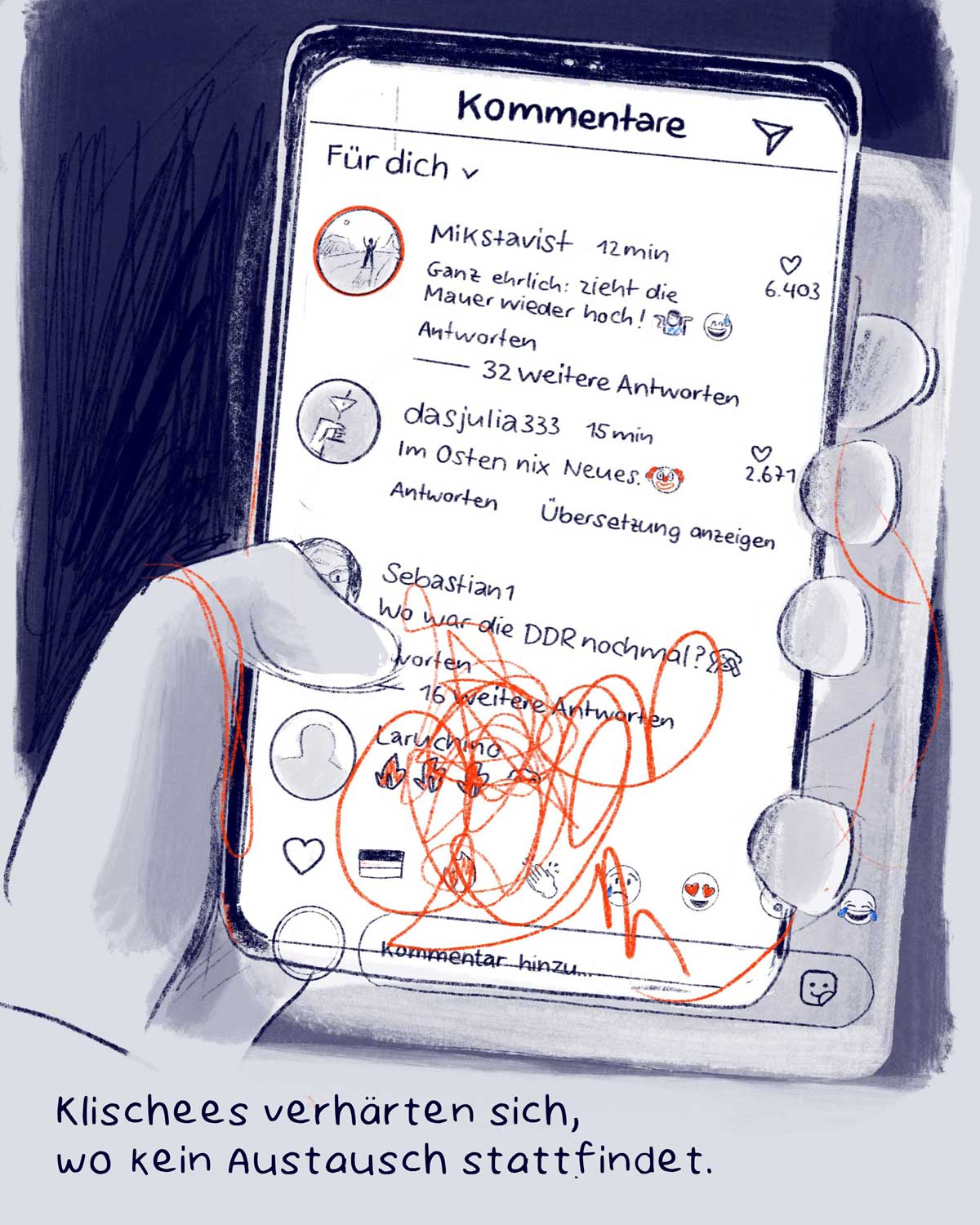
Stereotypes become entrenched where there is no exchange.
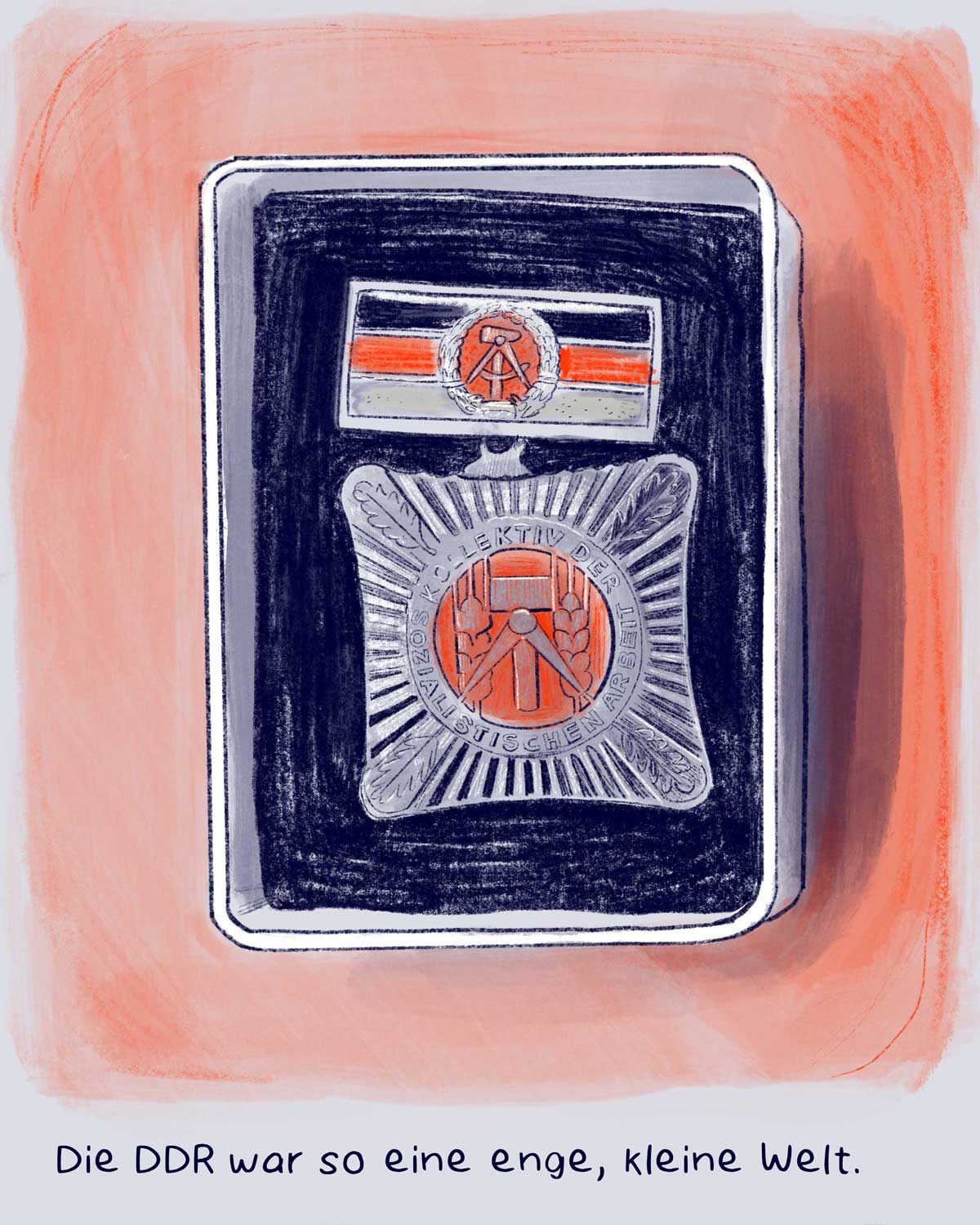
The GDR was such a narrow, small world.

And in retrospect, much of it seems one-dimensional. And gray.
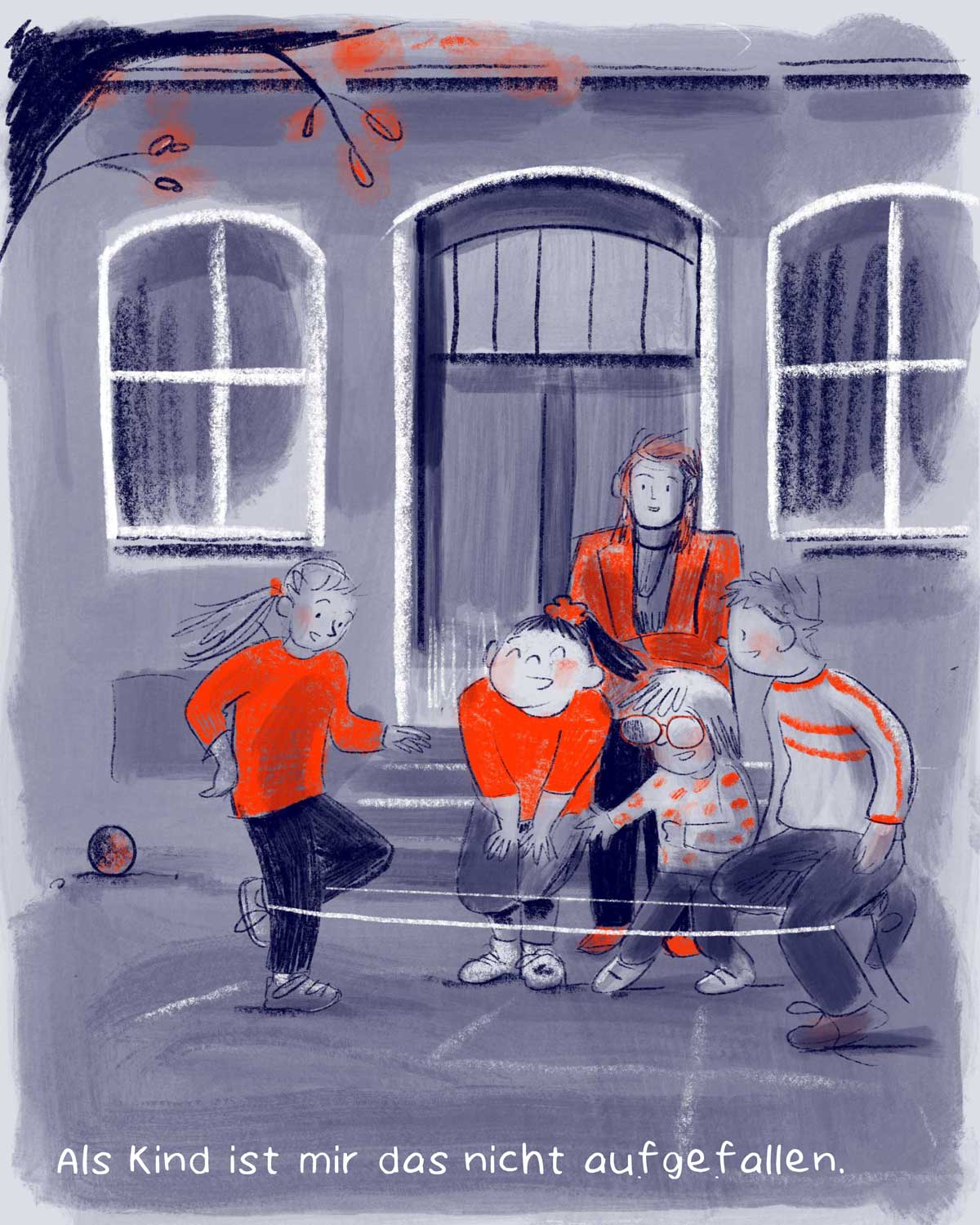
As a kid, I didn’t notice.
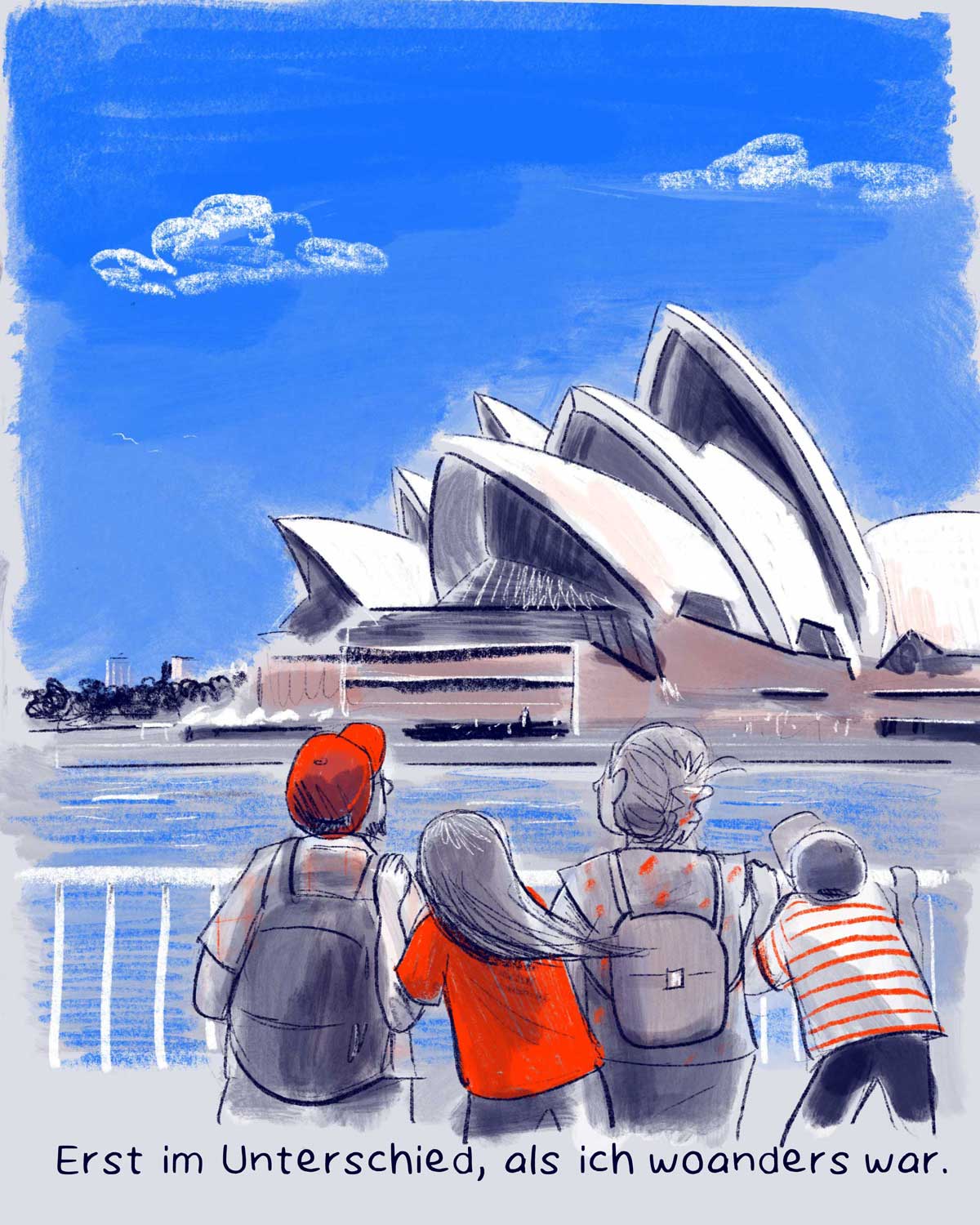
Only later, when I saw what it was like elsewhere.
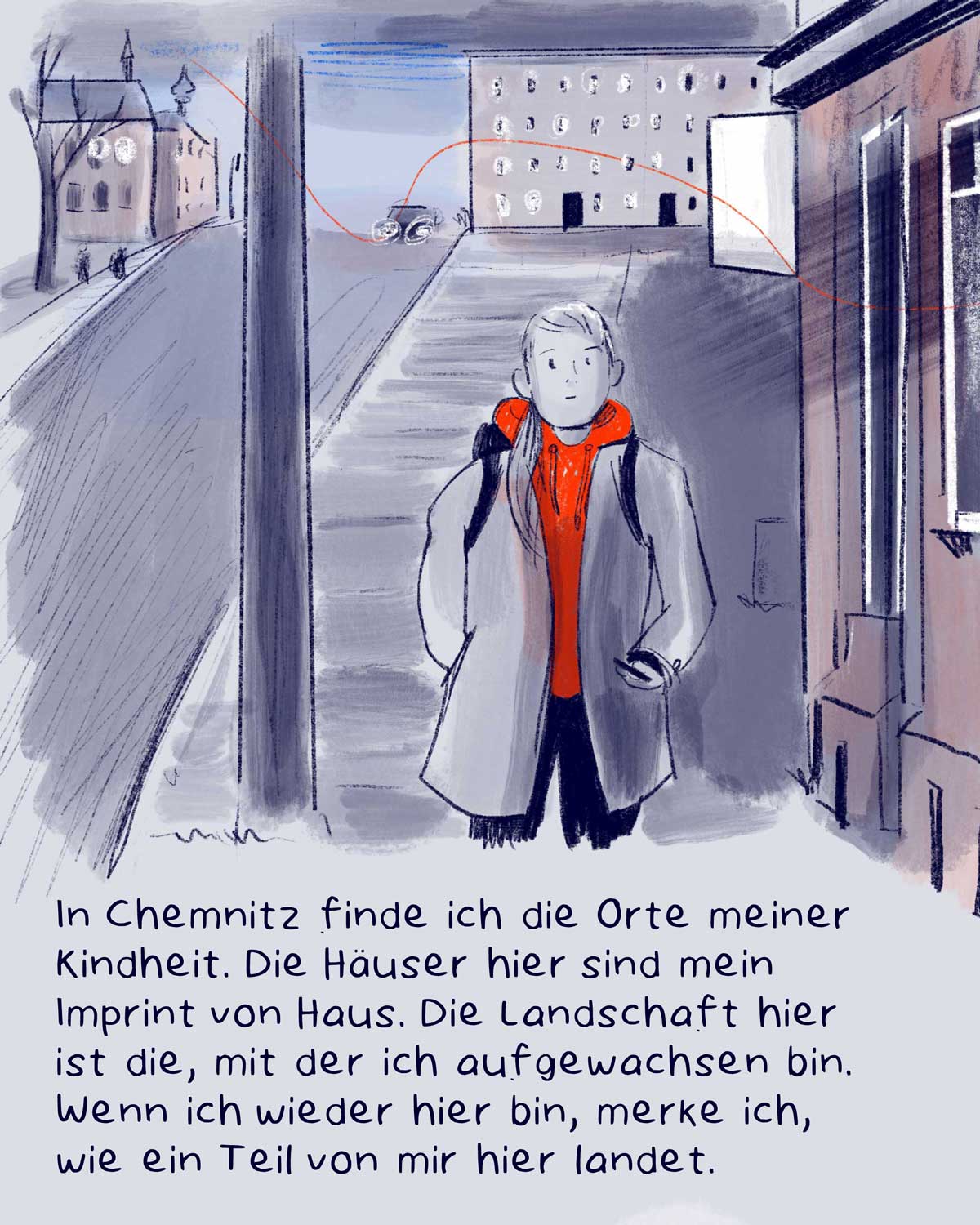
In Chemnitz, I find the places of my childhood. The houses here are my imprint of what a house is. The landscape here is the one I grew up with. Whenever I return, I feel how deeply a part of me settling here.
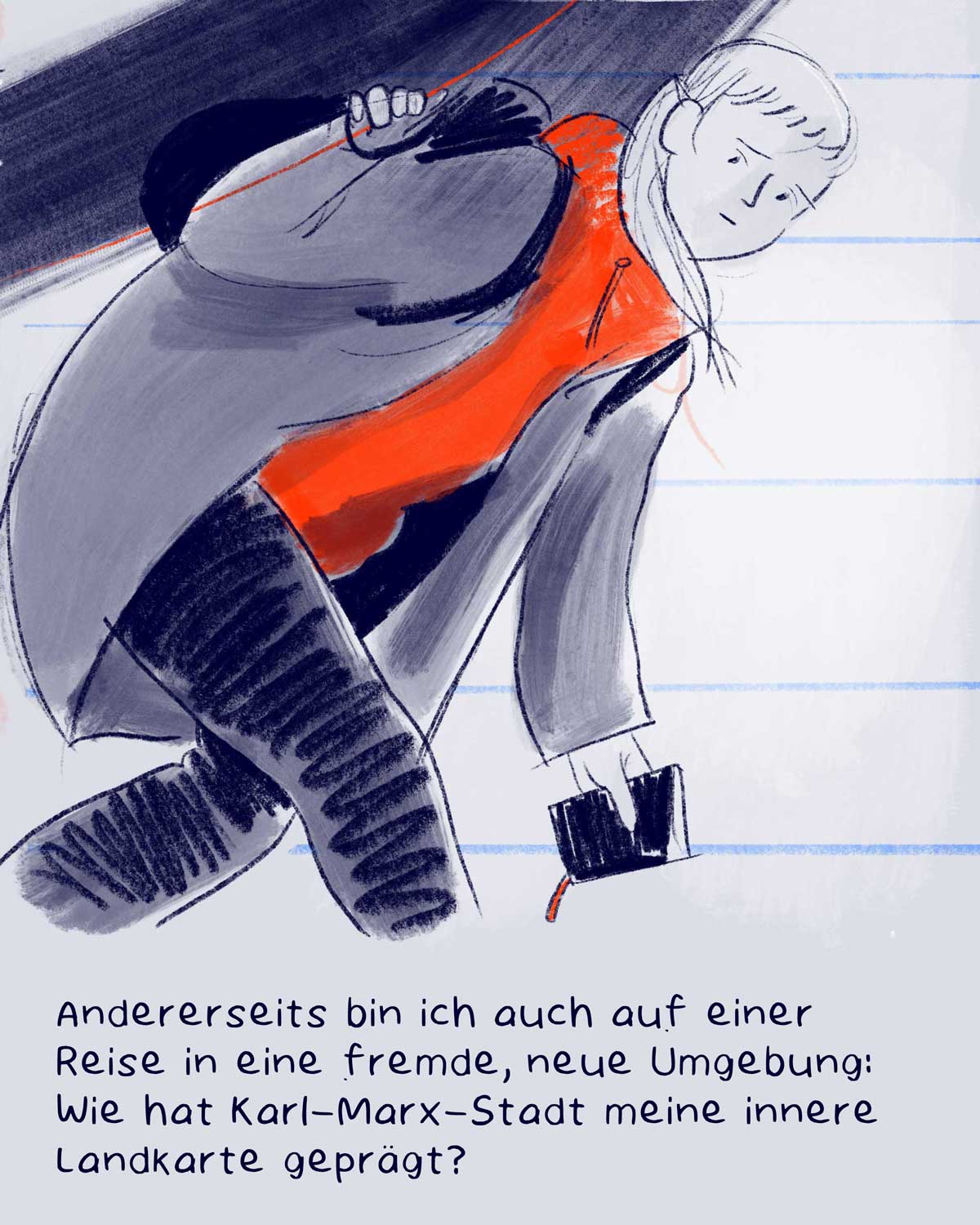
On the other hand, I am also on a journey into a foreign, new environment: How did Karl-Marx-Stadt shape my inner map?
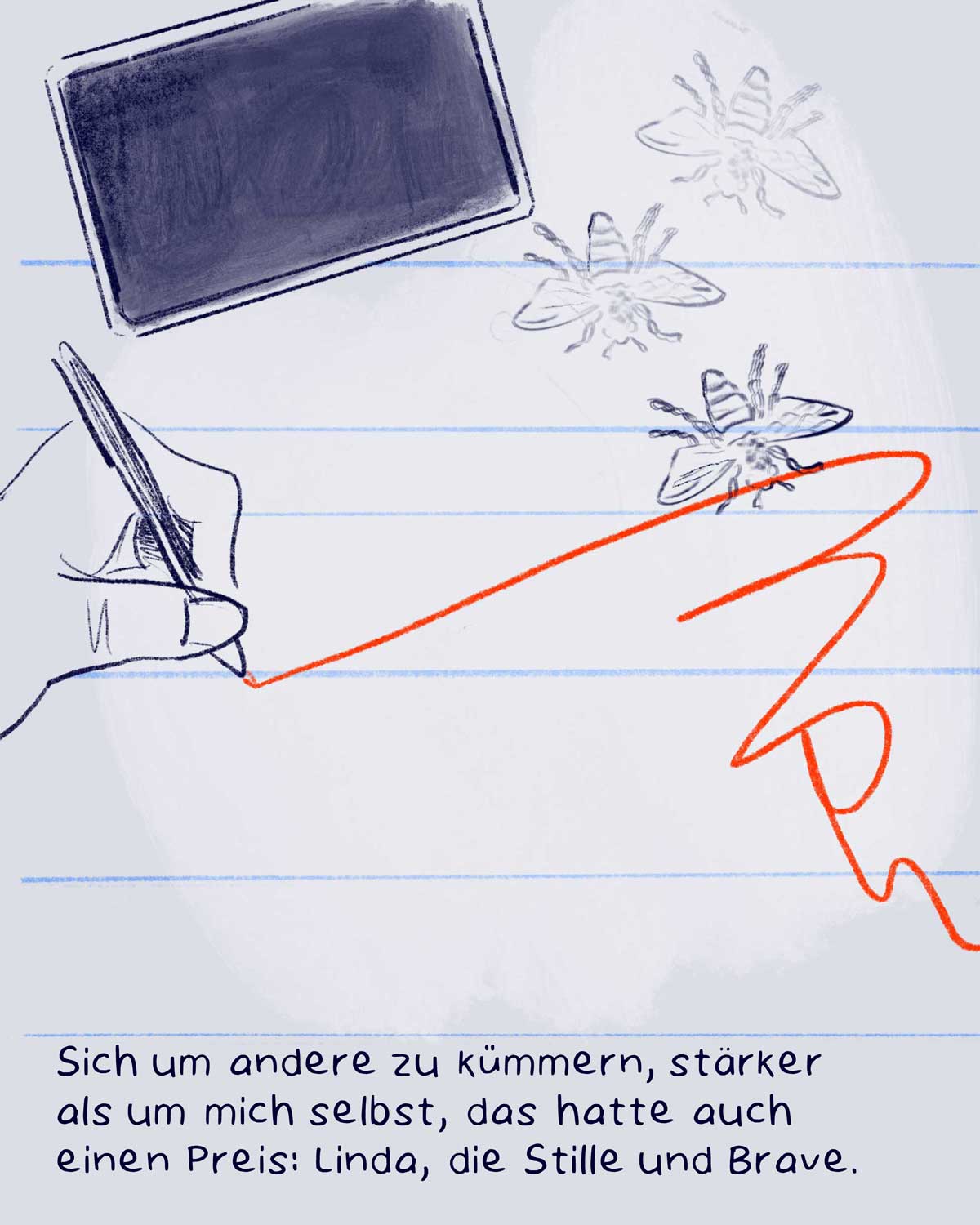
Caring for others more than for myself also had a price: Linda, the quiet and well-behaved one.
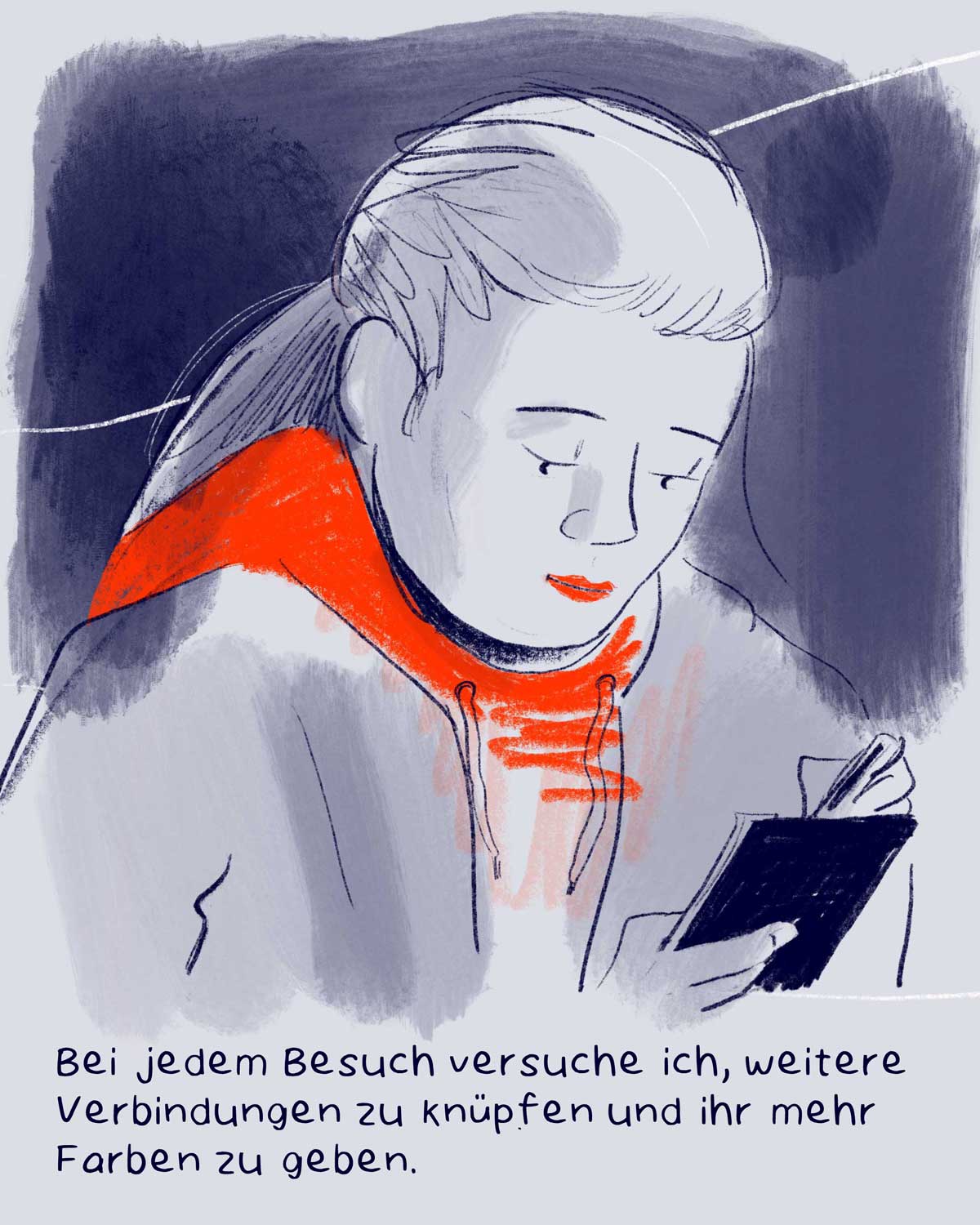
With each visit, I try to make more connections and give them more color.

It’s important to me to talk about the GDR and the time of reunification – about the beautiful and the painful.

And I want to listen: What was it like for the generations before me?

Sometimes it takes generations to find the words for what has happened.
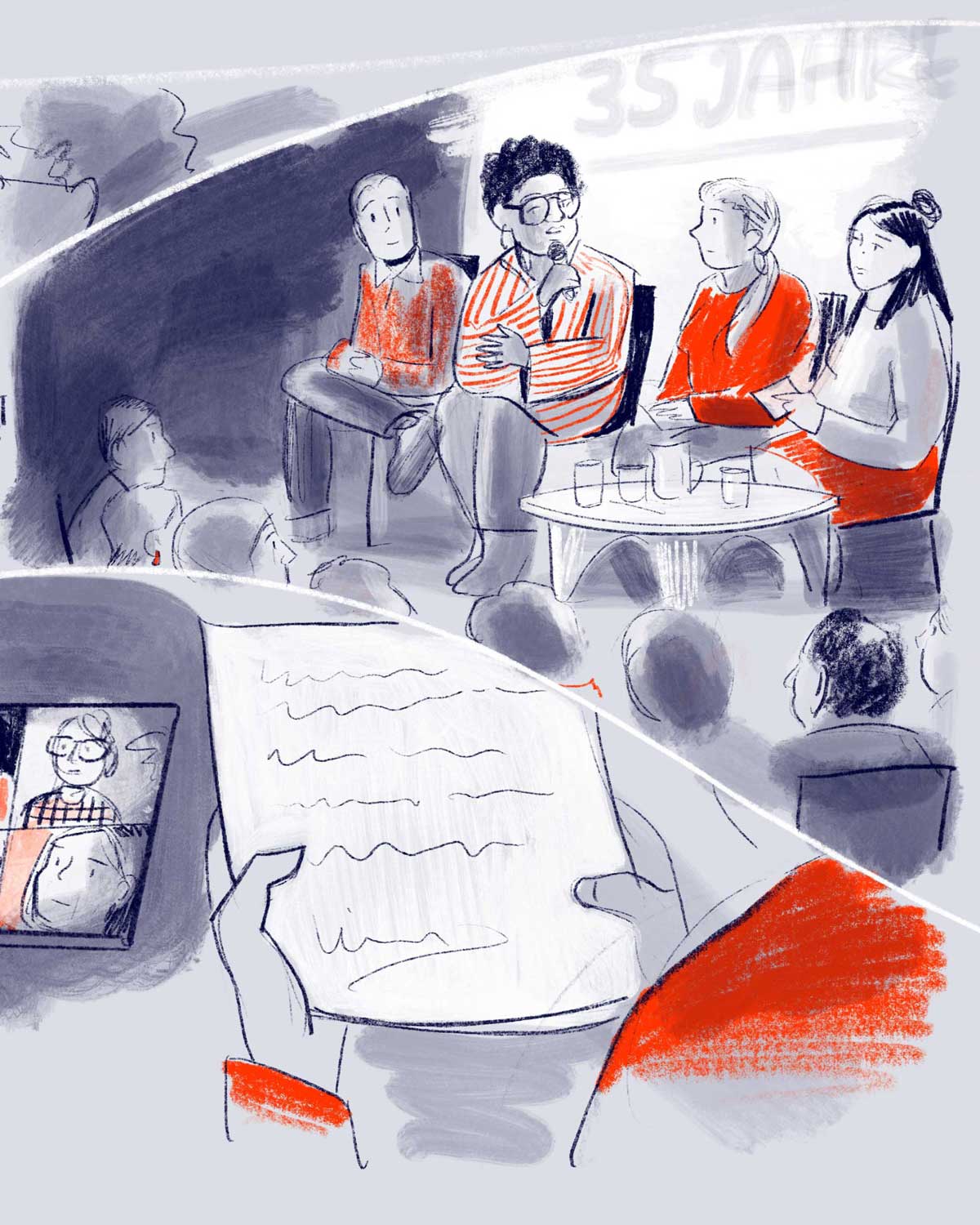
Finanzierung / Sponsoring
Ein Projekt im Rahmen der Kulturhauptstadt Europas Chemnitz 2025. Diese Maßnahme wird mitfinanziert durch Steuermittel auf der Grundlage des vom Sächsischen Landtag beschlossenen Haushaltes und durch Bundesmittel der Beauftragten der Bundesregierung für Kultur und Medien.

Mit freundlicher Unterstützung des Finnland-Instituts, Berlin / With the kind support of the Finnland Institut, Berlin
Wir danken unseren Sponsoren Volksbank Chemnitz, sowie der Deutschen Telekom!
